Nava Atlas's Blog, page 41
May 11, 2021
Susan Sontag
In the course of American letters, there have been very few writers who are able to approach the iconoclastic status and cultural significance that Susan Sontag (1933 – 2004) gained in her sixty-year career as an essayist, documentarian, political activist and novelist.
Beginning with her classic essay, “Notes on Camp“ (1963), Sontag embraced her role as one of the country’s premier public intellectuals; and, with her signature style of always dressing in black — combined with her long black hair with one distinctive white streak framing her face — Sontag became instantly recognizable in pop culture and in the more refined circles of literary discourse.
Sontag achieved what was believed to be impossible for any American writer: she could easily pontificate on structuralist philosophy and on the history of interpretation — subjects not widely embraced in American culture — yet Sontag easily made the crossover from the inaccessible intellectual into the realm of established literary star.
Effective in multiple forms of media
At times, Sontag’s carefully constructed public image as America’s “Dark Lady” of literature who dominated the New York literary scene, was just that: an image. Considering the brilliance of Sontag’s legacy, such a thought carries no weight.
Her best-known critical works include the essay collections Against Interpretation (1966), Styles of Radical Will (1968), On Photography (1977), Illness as Metaphor (1978), and Where the Stress Falls (2001). Sontag’s fiction includes The Way We Live Now (1986), The Volcano Lover (1992) and In America (1999).
Sontag was also a filmmaker, documentarian, playwright, political activist, and from 1987 – 1989, Sontag served as the President of PEN, the international organization committed to freedom of expression and the advancement of literature.
Background and early life
Before she became Susan Sontag, she was born in New York City on January 16, 1933 to Jack and Mildred Rosenblatt. Jack Rosenblatt was a successful fur trader who died of tuberculosis when Susan was five. After Jack’s death, Mildred Rosenblatt moved her two young daughters, Susan and Judith, first to Long Island, New York, then to Tucson, Arizona.
They finally settled in North Hollywood, a suburb of Los Angeles when Susan was twelve. Along the way, Mildred met Army captain Nathan Sontag. Although Sontag mostly ignored her stepfather, she kept his last name. “I wanted a new name,” she later wrote in a diary, “the name I had was ugly and foreign.”
Sontag’s remembers her childhood as unhappy, with a mother who was unapproachable, distant and “always away.” There was also the question of Mildred’s alcohol abuse and the effect on her daughters — leading some biographers to conclude that Sontag’s often fraught relationships with other women stemmed from Mildred’s withholding of affection.
. . . . . . . . . .
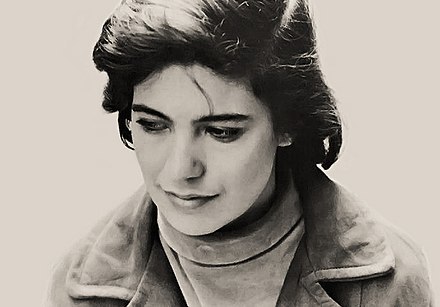
Susan Sontag in 1966
. . . . . . . . . .
Sontag graduated from North Hollywood High School and spent one semester at the University of California Berkeley before transferring to the University of Chicago.
For Sontag, the University of Chicago was her dream school — there were no sports teams and the students were eager to debate Plato. At the University of Chicago Sontag was presented with a set of intrinsic values — the belief in the superiority of the great books and high culture coupled with a disdain of commercial culture and philistinism would shape Sontag’s creative life.
At the University of Chicago, Sontag met Mike Nichols, a lifelong friend who would later become one of the country’s most respected film directors, and, her future husband, Philip Rieff. Rieff was Sontag’s sociology professor, twenty-eight years old Sontag’s seventeen when they met and married after one week of meeting one another.
Sontag was elected to the Phi Beta Kappa society when graduated from the University of Chicago at eighteen. Rieff and Sontag moved to Cambridge to pursue academic careers. Sontag was enrolled in a Harvard doctoral program and began studying literature, then added the studies of metaphysics, ethics, Greek and Continental philosophy and theology.
What’s notable about this time in Cambridge, besides having the esteemed professor Herbert Marcuse (who became the mentor for the young professor Angela Davis a decade later), living with Rieff and Sontag while he wrote his masterpiece Eros and Civilization, was the writing partnership between husband Philip Rieff and wife Susan Sontag.
When Philip Rieff published Freud: The Mind of the Moralist, Sontag asserted that she was the actual writer of Rieff’s book. Sontag later stated that she wrote “every single word” of the acclaimed study of Freud. However, at the end of their eight-year marriage (which produced a son, David Rieff), a divorce wholly acrimonious and painful, Sontag gave up her rights to the book as one term of their divorce settlement.
. . . . . . . . . .
[image error]
Susan Sontag pastel portrait by Juan Bastos
. . . . . . . . . .
A headline-grabbing divorce
Sontag’s 1957 divorce from Philip Rieff made headlines in the New York Daily News. Rieff held their son David as a form of hostage: Sontag had fallen in love with the Cuban playwright Maria Irene Fornes which, in Rieff’s perspective, made her an unfit mother.
Sontag was supporting herself as a writer at Commentary magazine and teaching religion part-time at Columbia University and refused alimony from Rieff. At that time, homosexuality was scandalous and grounds for denying custody of children in a divorce.
Sontag did eventually regain custody of David, but the terrifying experience of having her sexuality“outed” during the divorce proceedings would shape her decision never to formally “come out” during her lifetime. Nevertheless, she was romantically involved with a number of prominent men and women. Sontag’s last relationship was with noted photographer Annie Leibovitz, which lasted from the late 1980s until her death.
A provocative writer and thinker
For the next forty-five years, Sontag remained in New York, where, she stated, was the only place possible for her to live. “I don’t like America enough to want to live anywhere else except Manhattan. And what I like about Manhattan is that it’s full of foreigners. The America I live in is the America of the cities. The rest is just drive-through,” was Sontag’s perception of life outside of Manhattan.
Sontag kept writing and kept making uncomfortable statements: another Sontag legacy of speaking truth to power that made other critics and writers either very angry or just the opposite. Here are some of her best known and/or controversial stances:
Sontag zealously opposed the Vietnam War with the statement, “The white race is the cancer of human history.” Sontag consistently backed up her statements with action, and so she famously, or infamously, visited Hanoi in 1968 in the midst of a heavy bombing siege, to demonstrate solidarity with the North Vietnamese.
Five years later, Sontag bore witness against the ravages of war from the 1973 Arab-Israeli war. Sontag made the film, Promised Lands, a work that examined the Palestinian situation in Israel.
When writer Salman Rushdie was under fundamentalist Islamic fatwah, Sontag was a major supporter for him.
In the 1990s, Sontag made several humanitarian trips to Sarajevo, famously staging a production of the play Waiting for Godot during a bombing siege.
. . . . . . . . . . .

Susan Sontag page on Amazon*
. . . . . . . . . . .
In the last years of her life, while enduring immense pain from her third onset of cancer (Sontag had previously survived breast cancer and a mastectomy) Sontag wrote Regarding The Pain of Others. Sontag’s final written work scrutinizes the human response as they witness images of war and torture.
The book was the culmination of Sontag’s attempt to have her readers comprehend the political and social events of their times through a moral compass. “I’m interested in various kinds of passionate engagement. All my work says ‘be serious, be passionate, wake up.’”
Sontag died in New York City on December 18, 2004. At the suggestion of her son, David, Sontag is buried in Paris, a city that Sontag passionately loved to visit. For the millions of readers attracted to Sontag as a writer and thinker, her tremendous legacy of work will offer years of introspection, debate, and contemplation.
. . . . . . . . . .
Contributed by Nancy Snyder, who writes about women writers and labor women. After working for the City and County of San Francisco for thirty years, she is now learning everything about Henry David Thoreau in Los Angeles.
More about Susan SontagEssay collections
Other essays by Sontag not compiled into books appeared in The New Yorker, The New York Review of Books, Times Literary Supplement, The Nation, Partisan Review, London Review of Books, and others.
Against Interpretation (1966, includes Notes on “Camp”) Styles of Radical Will (1969)Under the Sign of Saturn (1980) Where the Stress Falls (2001)Regarding the Pain of Others (2003) At the Same Time: Essays & Speeches (2007)Fiction (novels & short stories)
The Benefactor (novel, 1963)Death Kit (novel, 1967) I, etcetera (short stories, 1977) The Volcano Lover (novel, 1992) In America (novel, 1999)Plays
The Way We Live Now (1990)A Parsifal (1991)Alice in Bed (1993)Lady from the Sea (1998)Films
Duett för kannibaler (Duet for Cannibals, 1969) Broder Carl (Brother Carl, (1971) Promised Lands (1974) Unguided Tour AKA Letter from Venice (1983)Selected biographies and criticism
Susan Sontag: The Elegiac Modernist by Sohnya Sayres (1990)Susan Sontag: The Making of an Icon by Carl Rollyson and Lisa Paddock (2000)Swimming in a Sea of Death: A Son’s Memoir by David Rieff (2008)Notes on Sontag by Phillip Lopate (2009)Susan Sontag: A Biography by Daniel Schreiber (2014)Sempre Susan: A Memoir of Susan Sontag by Sigrid Nunez (2014)Sontag: Her Life and Work by Benjamin Moser (2019)More information
Official website “Susan Sontag, The Art of Fiction No. 143” – The Paris Review, Winter 1995 Wikipedia Obituary in The Guardian (December 29, 2004)“How Susan Sontag Taught Me to Think” (A.O. Scott, NY Times, 2019) “Misunderstanding Susan Sontag” (Merve Emre, The Atlantic, 2019) Reader discussion of Sontag’s works on Goodreads. . . . . . . . .
*This is an Amazon Affiliate link. If a product is purchased by linking through, Literary Ladies Guide receives a modest commission, which helps maintain our site and helps it to continue growing!
The post Susan Sontag appeared first on Literary Ladies Guide.
May 7, 2021
10 Classic Indian Women Poets, from Akka Mahadevi to Meena Alexander
India is a rich mosaic when it comes to languages, cultures and states. This diverse selection keeps in mind the feminist angle as it journeys from the 12th century through the 21st. These classic Indian women poets are presented here in order of birth, from Akka Mahadevi (1130-1160) through Meena Alexander (1951-2018).
Though all have passed on, their voices and influence echo through the ages. Pictured at right, Kamala Das as a young woman.
. . . . . . . . . .
Akka Mahadevi (1130-1160)
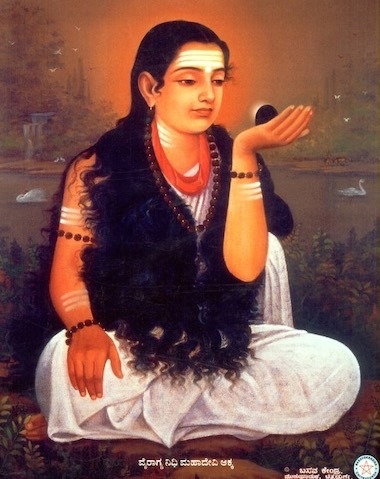
One of the earliest known women poets in Kannada literature, Akka Mahadevi is known for her 430 extant Vachanas (spontaneous mystical poetry) and enjoys saintly status in the Lingayat community, which rose as a reformist movement to Hinduism in Karnataka.
Welding
The arrow that is shot should penetrate so deeply
that even the feathers do not show.
Hug the body of the Lord so tightly
that the bones must be crushed to crumble.
Weld to the divine until the very welding disappears.
. . . . . . . . . .
Lal Ded (1320-1392)
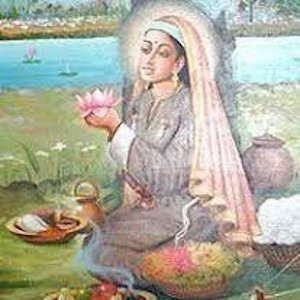
Despite being born in 14th century Kashmir, Lal Ded is considered one of the region’s most revered mystic poets, even 700 years later. Her work, known as Vak meaning words, has come down through the folk tradition and is considered as a foundation for Kashmiri literature. Her work holds value for both Hindus and Muslims.
I have seen an educated man starve,
a leaf blown off by bitter wind.
Once I saw a thoughtless fool
beat his cook.
Lalla has been waiting for the allure of the world
to fall away.
I might scatter the southern clouds,
drain the sea, or cure someone
hopelessly ill.
But to change the mind of a fool
is beyond me.
(from Bhaki poems)
. . . . . . . . . .
Muddupalani (1730-1790)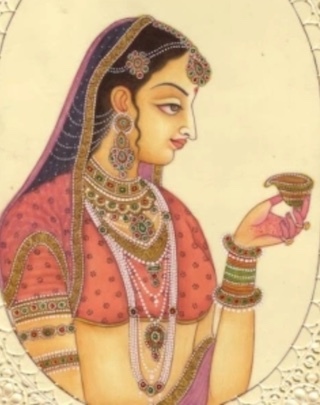
A courtesan in the court of King Pratap Singh, the Maratha King of Tanjore, Muddupalani is most renowned for her erotic poem, “Rādhikā-sāntvanam” (Appeasing Radha). Here is a portion of it:
… A face that glows like the full moon.
Skills of conversation, matching the countenance.
Eyes filled with compassion,
matching the speech.
A great spirit of generosity,
matching the glance.
These are the ornaments
that adorn Palani,
When she is praised by kings.
. . . . . . . . . .
Savitribai Phule (1831-1897)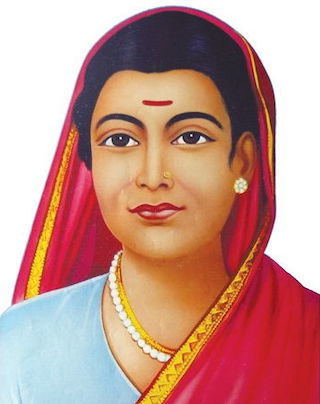
Besides being an engaged poet, Savitribai Phule took on the forces of caste and patriarchy forcefully during her time, and was a social reformer and educationist. She used the medium of poetry to spread awareness and the compilations are available as Kavya Phule and Bavan Kashi Subodh Ratnakar.
Learn English
Make self-reliance your occupation,
Exert yourself to gather the wealth of knowledge,
Without knowledge animals remained dumb,
Don’t rest! Strive to educate yourself.
The opportunity is here,
For the Shudras and Ati Shudras,
To learn English
To dispel all woes.
Throw away the authority
Of the Brahmin and his teachings,
Break the shackles of caste,
By learning English.
. . . . . . . . . .
Toru Dutt (1856-1877)
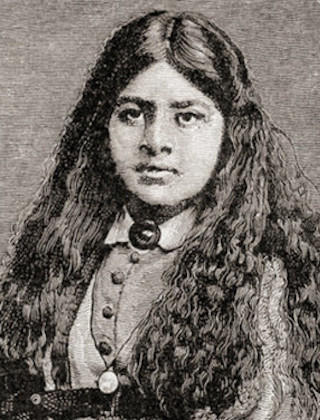
Referred to as the Keats of India, Toru Dutt was the first Indian poet to write in both English and French. Her best work, A Sheaf Gleaned in French Fields stands testimony to the lyricism and talent, which was cut short by her untimely death at the age of 21.
… Therefore I fain would consecrate a lay
Unto thy honor, Tree, beloved of those
Who now in blessed sleep for aye repose,—
Dearer than life to me, alas, were they!
Mayst thou be numbered when my days are done
With deathless trees—like those in Borrowdale,
Under whose awful branches lingered pale
Fear, trembling Hope, and Death, the skeleton,
And Time the shadow; and though weak the verse
That would thy beauty fain, oh, fain rehearse,
May Love defend thee from Oblivion’s curse.
(a portion of “Our Casuarina Tree”)
. . . . . . . . . .
Sarojini Naidu (1879-1949)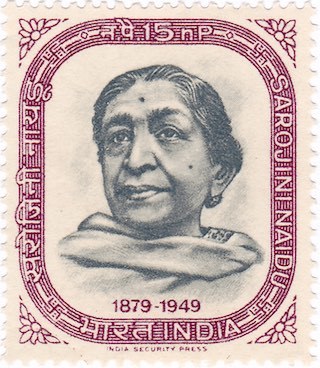
Poet, feminist and politician, Sarojini Naidu was also known as the Nightingale of India. Sarojini spoke several Indian languages whilst she composed her poetry in English. Her three collections of poems include The Golden Threshold.
… What are the sins of my race, Beloved,
what are my people to thee?
And what are thy shrines, and kine and kindred,
what are thy gods to me?
Love recks not of feuds and bitter follies,
of stranger, comrade or kin,
Alike in his ear sound the temple bells
and the cry of the muezzin.
For Love shall cancel the ancient wrong
and conquer the ancient rage,
Redeem with his tears the memoried sorrow
that sullied a bygone age.
(A portion of “An Indian Love Song”)
. . . . . . . . . .
Mahadevi Varma (1907-1987)
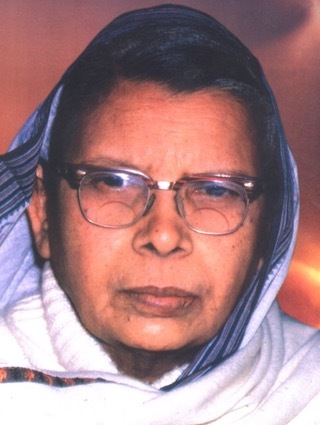
Mahadevi Varma is considered one of the four pillars of the Chhaayavadi (shadowism) movement of Hindi poetry and interestingly the only woman to figure there. Her four poetic works are published under the title, Yama and encompass feminist concerns.
Why an introduction dear
Why an introduction dear, you are within me,
reflections on starry nights, memories of a life,
creations of life in short spells, eyes notice
creations of life in short spells, eyes notice
gentle footsteps!
I don’t much to treasure anymore,
you are the treasure I have in me.
Your dazzling, radiant smile like sunrise
Is the reflection of fragrant sorrow,
it is consciousness, and dreamy slumber,
Let me tire and sleep incessantly, for
Would I understand the creation, big-bang!!
You are drawn, I am just an outline,
you are the sweet melody, I am just a string of notes,
you are limitless, I am but an illusion of limits,
In the secrecy of real image-reflection,
why enact to be lovers!!!
Why an introduction, since you are within me.
. . . . . . . . . .
Amrita Pritam (1919-2005)

Considered a maverick writer and poet, Amrita Pritam wrote in both Punjabi and Hindi. She moved from romantic to social commentary and was deeply affected by the Partition of India. In her most famous poem, “Aj Akhaan Waris Shah Nu” (“Today, I invoke Waris Shah”), she challenges the tropes used in the entire literary canon of romantic poetry, to question the status of a woman as a beloved.
Me—a book in the attic.
Maybe some covenant or hymnal.
Or a chapter from the Kama Sutra,
or a spell for intimate afflictions.
But then it seems I am none of these.
(If I were, someone would have read me.
Apparently at an assembly of revolutionaries
they passed a resolution,
and I am a longhand copy of it.
It has the police’s stamp on it
and was never successfully enforced.
It is preserved only for the sake of procedure.
(a portion of “A Letter”)
. . . . . . . . . .
Kamala Das (1934-2009)

The prolific author and poet Kamala Das, who wrote under the pen name of Madhavi Kutty, also came to be known as Kamala Sorayya, as she converted to Islam towards the last few years of her life. She brought in the concept of Confessional Poetry, very rare among women poets and has many volumes of poetry to her credit.
I don’t know politics but I know the names
Of those in power, and can repeat them like
Days of week, or names of months, beginning with Nehru.
I am Indian, very brown, born in Malabar,
I speak three languages, write in
Two, dream in one.
Don’t write in English, they said, English is
Not your mother-tongue. Why not leave
Me alone, critics, friends, visiting cousins,
Every one of you? Why not let me speak in
Any language I like? The language I speak,
Becomes mine, its distortions, its queernesses
All mine, mine alone.
(A portion of “An Introduction” — read this poem in full and several others in 10 Poems by Kamala Das, Confessional Poet of India)
. . . . . . . . . .
Meena Alexander (1951-2018)

The only non-resident late Indian poet to make this list, Meena Alexander has many volumes of poems to her credit. Some have also been set to music, including Acqua Alta by the Swedish composer, Jan Sandstrom. Her poetic influences are Indo-American and include Kamala Das and Adrienne Rich.
Cadenza
I watch your hands at the keyboard
Making music, one hand with a tiny jot,
A birthmark I think where finger bone
Joins palm, mark of the fish,
Living thing in search of a watering
Hole set in a walled garden,
Or in a field with all the fences torn:
Where I hear your father cry into the wind
That beats against stones in a small town
Where you were born; its cornfields
Skyward pointing, never sown, never
To be reaped, flagrant, immortal.
Contributed by Melanie P. Kumar: Melanie is a Bangalore, India-based independent writer who has always been fascinated with the magic of words. Links to some of her pieces can be found at gonewiththewindwithmelanie.wordpress.com.
. . . . . . . . .
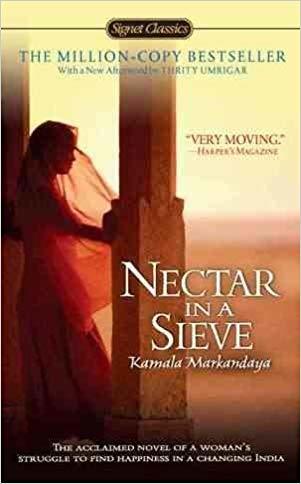
See also: 10 Classic Indian Women Authors
The post 10 Classic Indian Women Poets, from Akka Mahadevi to Meena Alexander appeared first on Literary Ladies Guide.
May 6, 2021
An Analysis of We Have Always Lived in the Castle by Shirley Jackson
This analysis of We Have Always Lived in the Castle (1962), Shirley Jackson’s last novel, has a special emphasis on Mary Katherine (Merricat), the younger of the Blackwood sisters central to the story. Excerpted from Girls in Bloom: Coming of Age in the Mid 20th Century Woman’s Novel by Francis Booth, reprinted by permission.
In Shirley Jackson’s The Sundial and The Haunting of Hill House, she used an old house as a brooding, malign presence in the novel, almost a character in its own right. She did the same, though in a completely different way, in We Have Always Lived in the Castle, her last completed novel.
Shirley Jackson is a kind of Virginia Werewoolf among the séance-fiction writers. By day, amiably disguised as an embattled mother, she devotes her artful talents to the real-life confusions of the four small children (Life Among the Savages, Raising Demons) in her Vermont household. But when shadows fall and the little ones are safely tucked in, Author Jackson pulls down the deadly nightshade and is off. With exquisite subtlety she then explores a dark world (“The Lottery,” Hangsaman, The Haunting of Hill House) in which the usual brooding old houses, fetishes, poisons, poltergeists and psychotic females take on new dimensions of chill and dementia under her black-magical writing skill and infra-red feminine sensibility. (Time Magazine, 1962)
A literary cousin of Natalie Waite and Cassandra Mortmain
We Have Always Lived in the Castle was well received at the time of its publication – the reception of Jackson’s books got warmer with each new one she published – and has been well-regarded ever since, generally being considered her best work.
But it is strange that little attention has been paid to the similarity in title and content to Dodie Smith’s I Capture the Castle; both are narrated by odd, isolated adolescent women living in fortress-like solitude, though Smith’s Cassandra Mortmain is perhaps more like Jackson’s Natalie Waite of Hangsaman than Merricat Blackwood.
Shirley Jackson’s previous adolescent heroines, including Natalie, have all been a little bit unhinged, but of this novel she said that the heroine was “really crazy.” Jackson’s older daughter Jannie told her mother’s biographer Judy Oppenheimer that the character of Merricat was based on her younger sister Sally and the character of the older sister Constance was based on herself.
Introducing Merricat BlackwoodJackson understood teenage girls and saw how really crazy they could be. In this case, the crazy girl is the narrator so that we see the story, indeed the whole world through her rather myopic, out of focus eyes. The opening paragraph is often quoted, and rightly so, as one of the best opening paragraphs in modern fiction; it is worth quoting again.
My name is Mary Katherine Blackwood. I am eighteen years old, and I live with my sister Constance. I have often thought that with any luck at all I could have been born a werewolf, because the two middle fingers on both my hands are the same length, but I have had to be content with what I had. I dislike washing myself, and dogs, and noise. I like my sister Constance, and Richard Plantagenet, and Amanita phalloides, the death-cup mushroom. The rest of my family is dead.
Actually this is not completely true: her uncle Julian is not dead and still lives with them, though he is in a wheelchair and has advanced dementia – he never speaks to Merricat and seems to think she is dead, along with the rest of the family who used to live in the house. It becomes apparent that the rest of the family have been poisoned and that Constance – ten years older than Merricat – was tried for their murder but not convicted.
. . . . . . . . .
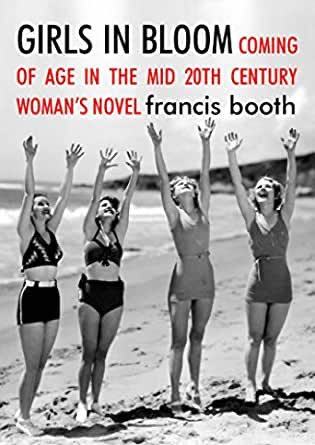
Girls in Bloom by Francis Booth on Amazon*
Girls in Bloom on Amazon UK*
Girls in Bloom in full on Issuu
. . . . . . . . .
The remaining three family members live in a large rambling house on the edge of the village (presumed to be based on the New England town of Bennington where the Jacksons lived; her husband taught at the local college, a prestigious school for girls at the time). The inhabitants of the fictional village resented the old and wealthy family, who have lived in the house for generations, for their pretensions, and even more so after Merricat’s late father had fenced off the shortcut through the estate that the villagers used to use.
“The people of the village have always hated us.” Merricat is the only one who leaves the grounds of the house and only then twice a week to do the shopping and go to the library; Constance, who is an excellent gardener and cook gives her a shopping list.
Merricat gets through the shopping and comes home as quickly as possible, though she always briefly stops for coffee just to show that she does not care what people think, even though she does; whenever any of the surly and suspicious villagers come in they always taunt her. Merricat hates them in return.
Sympathetic magic
Merricat seems to have a degree of what would now be called OCD; whenever she leaves the house she plays a superstitious kind of children’s game of gaining and losing points depending on which route she can take.
“The library was my start and the black rock was my goal. I had to move down one side of Main Street, cross, and then move up the other side until I reached the black rock, when I would win. I began well, with a good safe turn along the empty side of Main Street, and perhaps this would turn out to be one of the very good days; it was like that sometimes, but not often on spring mornings. If it was a very good day I would later make an offering of jewelry out of gratitude.”
Merricat is superstitious to the point of believing in sympathetic magic; she buries objects and uses coins and mirrors to bring luck. She lives in her own private world, on the moon, as she puts it, though she does not mean this literally: “I am living on the moon, I told myself, I have a little house all by myself on the moon.”
Like all young girls she has a private world to which she can retreat in her head – taking with her her cat Jonas, who acts as kind of a witch’s familiar; Jackson had written a non-fiction book the children about the Salem witch trials, where adults believed that young girls believed that they could harm people with sympathetic magic. But of course Merricat is not a young girl, she is eighteen, even if she is mentally not even the twelve years old she was at the time of the death of her family.
Merricat and Constance
“I liked my house on the moon, and I put a fireplace in it and a garden outside (what would flourish, growing on the moon? I must ask Constance).” Constance, who is more like a loving mother than an older sister, always indulges Merricat in her fantasies.
Merricat and Constance are extremely fond of each other, complementing each other perhaps to the extent of being two halves of the same character; we have seen this several times in Girls in Bloom: two sisters with opposing personalities who are both to sides of the same coin.
“When I was small I thought Constance was a fairy princess … Even at the worst times she was pink and white and golden, and nothing has ever happened to dim the brightness of her. She is the most precious person in my world, always.”
In return, Constance loves and looks after Merricat with great affection and solicitude, sometimes calling her ‘silly Merricat’, but never chiding her or getting cross with her. It emerges that, before the poisoning, Merricat had been considered wayward and disobedient and had often been sent to bed with no supper, as she was on the night of the poisoning.
The remaining family members are quite content with their strange life, which they have lived for the six years since the poisoning. Uncle Julian never leaves the house, Constance never leaves the grounds and only leaves the house to tend to her garden; practically no one ever comes to visit them.
“Don’t you ever want to leave here, Merricat?” asks Constance. “Where would we go?” she replies. “What place would be better for us than this? Who wants us, outside? The world is full of terrible people.”
The two sisters are even fond of uncle Julian, who is happy enough pottering around taking notes and claiming to be writing a book about the poisoning, though he gets confused and very often has to ask if the poisoning actually happened. The two sisters never talk about it and Merricat never reveals anything to us, but we are slowly coming to think that perhaps it was she who did the poisoning and not Constance.
. . . . . . . . .
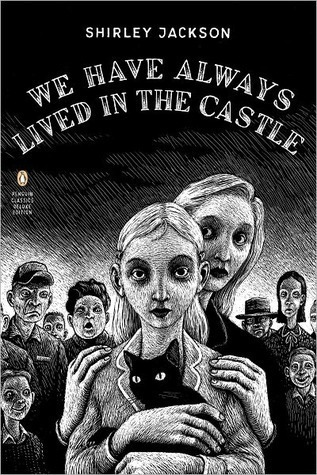
A 1962 review of We Have Always Lived in the Castle
. . . . . . . . .
The finely balanced domestic harmony is shattered when the sisters’ cousin Charles comes to visit and seems intent on staying. Merricat had already foreseen something: “All the omens spoke of change.” Change of course being the last thing that Merricat wants; she never wants to come of age. “There’s a change coming,” she says to Constance. “It’s spring, silly,” she replies.
It is quickly apparent to us, if not to Merricat and Constance, that Charles is after their money: it seems that the father had had a large amount of money in his safe when the family all died. There are also many silver coins, which Merricat has buried for superstitious reasons.
“On Sunday mornings I examined my safeguards, the box of silver dollars I had buried by the creek, and the doll buried in the long field, and the book nailed to the tree in the pinewoods; so long as they were where I put them nothing could get in to harm us.” Charles, who seems to be broke, becomes almost hysterical at this disregard of money but of course the two sisters are not concerned about money as such, they only need enough to live on; uncle Julian has no idea where the money comes from to provide the food that Constance prepares for him three times a day.
Merricat tries various kinds of sympathetic magic to get Charles to leave, but he is intent on staying and Constance seems to become almost fond of him. “It was important to choose the exact device to drive Charles away. An imperfect magic, or one incorrectly used, might only bring more disaster upon our house.”
Merricat tries everything, including not only symbolic magic like smashing mirrors but also practical attacks on him like pouring a pitcher of water over his bed. She even says to Constance: “I was thinking that you might make a gingerbread man, and I could name him Charles and eat him.” This is a very similar idea of sympathetic magic to the “poppets” that the so-called Salem Witches used, as Jackson had said in her book on them and Arthur Miller showed in his play The Crucible of 1955.
There is even more explicit reference to this kind of magic when Merricat finds a stone the size of a head, draws a face on it, buries it in the ground and says, “Goodbye, Charles.” But Charles’ presence seems to be making Constance reconsider their life.
“I never realized until lately how wrong I was to let you and Uncle Julian hide here with me. We should have faced the world and tried to live normal lives; Uncle Julian should have been in a hospital all these years, with good care and nurses to watch him. We should have been living like other people. You should…” She stopped, and waved her hands helplessly. “You should have boyfriends,” she said finally, and then began to laugh because she sounded funny even to herself.
“I have Jonas,” I said, and we both laughed and Uncle Julian woke up suddenly and laughed a thin old cackle.
“You are the silliest person I ever saw,” I told Constance, and went off to look for Jonas.
. . . . . . . . .
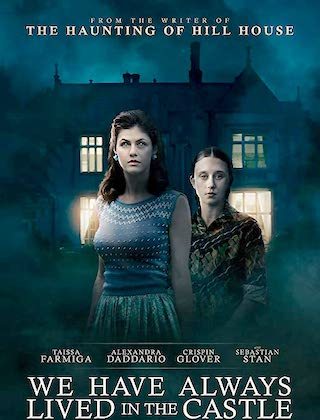
We Have Always Lived in the Castle (2019 film)
. . . . . . . .
Merricat is appalled at the way Charles brings newspapers into the house; they have no phone, never open mail and have received no news since Constance was released from prison. Another of Charles’ annoying habits for Merricat is his pipe-smoking, which leaves smell and mess in the pristine house – ever since the poisoning the two sisters have “neatened” the house weekly, leaving everything undisturbed and as it was when the whole family was living there.
She finds a saucer with his burning pipe on it; “I brushed the saucer and the pipe of the table into the wastebasket and they fell softly onto the newspapers he had brought into the house.’ If it does occur to her that this will cause a fire, she does not tell us. But of course it does cause a fire.
The local fire brigade attend, though all the neighbors stand around watching and tell them to let it burn. The villagers then go in to the house and start smashing objects and breaking windows in a frenzy of hatred that again recalls the days of witch hunting; the burning of “witches” – the auto da fé or act of faith – was supposed to free their souls.
Uncle Julian dies in the fire and Charles leaves but the two sisters remain in what is left of the house, which is pretty much only the kitchen. “Our house was a castle, turreted, and open to the sky.” (This makes their house even more like Cassandra Mortmain’s castle.) They decide that they will continue their lives as before; the kitchen was the centre of their existence anyway. They have no clothes, as everything has been destroyed, but Constance says she will wear uncle Julian’s shirts, which have survived and Merricat will wear a tablecloth made into a dress.
There is preserved food in the cellar, and the garden, though covered in ash, will still produce fresh food for them. They board up the door so that no one can see in, now that the village children have started to play on the path that their father had blocked off. And then, after only a few days, villagers start to leave food outside the door with apology notes for their behavior; they will not starve and they have each other.
One of our mother’s Dresden figurines is broken, I thought, and I said aloud to Constance, “I am going to put death in all their food and watch them die.”
Constance stirred, and the leaves rustled. “The way you did before?” she asked.
It had never been spoken of between us, not once in six years.
“Yes,” I said after a minute, “the way I did before.”
This is the nearest Merricat comes to a coming of age moment: admitting guilt and taking responsibility for her actions, though she does not have any regret. “Although I did not perceive it then, time and the orderly pattern of our old days had ended.” The new Merricat accepts the changes; she stops believing in the power of magic and turns more practical things.
“My new magical safeguards were the lock on the front door, and the boards over the windows, and the barricades along the sides of the house … We were going to be very happy, I thought. There were a great many things to do, and a whole new pattern of days to arrange, but I thought we were going to be very happy.”
. . . . . . . .
Contributed by Francis Booth,* the author of several books on twentieth century culture:
Amongst Those Left: The British Experimental Novel 1940-1960 (published by Dalkey Archive); Everybody I Can Think of Ever: Meetings That Made the Avant-Garde; Girls in Bloom: Coming of Age in the Mid-Twentieth Century Woman’s Novel; Text Acts: Twentieth Century Literary Eroticism; and Comrades in Art: Revolutionary Art in America 1926-1938
Francis has also published several novels: The Code 17 series, set in the Swinging London of the 1960s and featuring aristocratic spy Lady Laura Summers; Young adult fantasy series The Watchers; and Young adult fantasy novel Mirror Mirror. Francis lives on the South Coast of England. He is currently working on High Collars and Monocles: Interwar Novels by Female Couples.
. . . . . . . . .
*These are Amazon Affiliate links. If a product is purchased by linking through, Literary Ladies Guide receives a modest commission, which helps maintain our site and helps it to continue growing!
The post An Analysis of We Have Always Lived in the Castle by Shirley Jackson appeared first on Literary Ladies Guide.
May 5, 2021
The Field House by Robin Clifford Wood — Rediscovering Rachel Field
A compelling blend of biography and memoir, The Field House: A Writer’s Life Lost and Found on an Island in Maine by Robin Clifford Wood (She Writes Press, May 4, 2021) recounts the remarkable life of writer Rachel Field (1894 – 1942) from the perspective of a woman who lived in Field’s old, neglected island home in Maine, sparking a unique sisterhood across time.
Born of illustrious New England stock, Rachel Field was a National Book Award-winning novelist, a Newbery Medal-winning children’s writer, a poet, playwright, and rising Hollywood success in the early twentieth century. Her light was abruptly extinguished at the age of forty-seven, when she died at the pinnacle of her personal happiness and professional acclaim.
Fifty years later, Robin Clifford Wood stepped onto the sagging floorboards of Rachel’s long-neglected home on the rugged shores of an island in Maine and began dredging up Rachel’s history. She was determined to answer the questions that filled the house’s every crevice: Who was this vibrant, talented artist whose very name entrances those who still remember her work? Why is that work—which was widely celebrated in her lifetime—so largely forgotten today?
. . . . . . . .
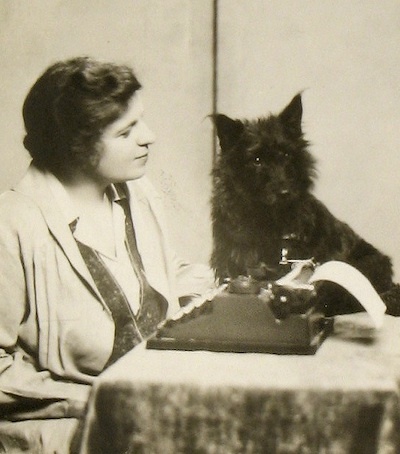
Rachel Field and her dog, Spriggen
(photo: Portland Library, Maine)
. . . . . . . .
Rachel Field is perhaps best known for the 1938 novel All This and Heaven Too, which was adapted to the 1940 film of the same name starring Bette Davis. She was also known for the children’s book Hitty — Her First Hundred Years, which won the 1930 Newbery Medal.
Kirkus Reviews calls The Field House “An eloquent, detailed tribute to a less well-known but inspiring author.” To celebrate the publication of this book, here’s an in-depth interview with its author, Robin Clifford Wood.
How did you first come to know Rachel Field? Have you always been a fan of her work?
I only had the vaguest awareness of Rachel Field before I started spending time on Sutton Island in 1979, but I’d heard of her poem that begins, “If once you have slept on an island, you’ll never be quite the same.”
That opening line proved to be true for Rachel and me both. She was still quite renowned in the Cranberry Isles region in the 1980s, so her name became increasingly familiar. When we first bought the Field House in 1994, tour boats still passed by out front announcing over their PA system: “Up there to your right you’ll see the home of the famous author Rachel Field.”
Keep in mind, too, that when people move out of these island homes, they leave most things behind. There are no roads, only footpaths for carting your supplies in wheelbarrows from the ferry dock. So I was living amongst Rachel’s things – the wicker furniture she sat on, her mail up in the attic, her books on shelves, the chipped china and tin coffee pot that were old even when she arrived, her initials hand-stitched into a linen dish towel, old galley-proofs in a drawer, a map of Paris from 1920 that she must have bought on a trip to Europe.
It wasn’t just the smell of spruce and sea-wind, the rhythm of tides and tolling of bell buoys, the expeditions to gather blueberries, cranberries and mushrooms, or the thick, moss-carpeted woods that we shared; I was also immersed in the same domestic space that Rachel inhabited.
. . . . . . . . .
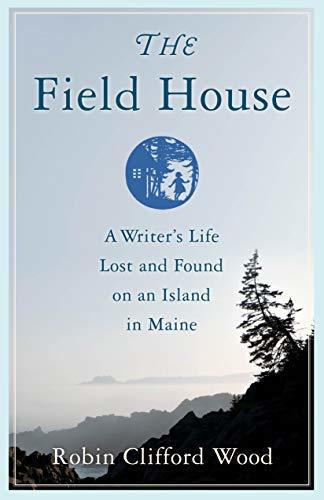
The Field House on Bookshop.org*
The Field House on Amazon*
. . . . . . . . .
How did you come to live in Field’s house in the Cranberry Isles, and what was the experience like for you? Do you believe fate had a part to play?
I first set foot on Sutton Island as an 18-year-old, when my college boyfriend invited me to visit his family’s summer home. I fell in love with the island’s peace and simplicity, life boiled down to just being. It was years (fourteen!) before Jonathan and I heard that Rachel’s old abandoned house was up for sale. By then we were married with four children, and the island was rooted deeply in the soil of our lives.
As soon as I walked into the house, I got flutters in my belly. I felt something – excitement? anticipation? connection? I knew it was a writer’s house before I got there, but I felt that it was a writer’s house when I stood inside its walls.
As for fate – who knows? A part of me thinks Rachel Field reached out to me across time. There were so many strangely convenient coincidences that joined Rachel’s life and mine, or streamlined my path to writing about her life. But it took so long for me to get her message – another fourteen years before I started researching Rachel’s life, then ten more to finish the book. Maybe fate or Rachel’s spirit or some magic muse led me here, but whoever it was, they were extremely patient.
. . . . . . . .
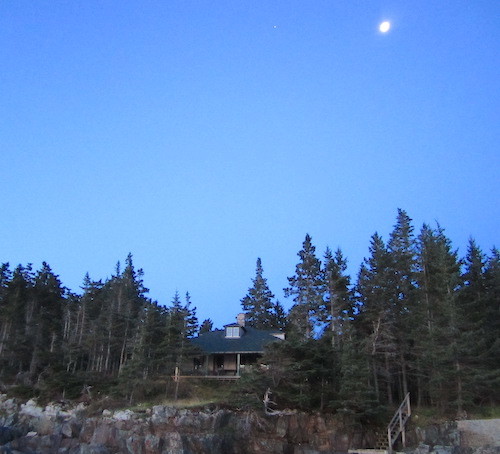
Moon over the Field House, present day
Photo: Robin Clifford Wood
. . . . . . . .
Can you tell me more about those “strangely convenient coincidences?”
Well, it seemed that every time I got discouraged or lost momentum on the project, some new source would mysteriously crop up to draw me back in. An archivist I’d met called to tell me about someone who wanted to donate his private Rachel Field collection to their library – could she share my contact information?
That someone became an important mentor. Other times, whenever my life began drifting away from the project, I’d get an invitation to read Rachel’s poetry at a public event, or a question about copyrights, or an invitation to give a talk about Rachel, or a new batch of letters in the mail from a Rachel Field fan. Getting a publisher was similarly serendipitous. I’d shifted my focus to a different project, and here came the big news. Rachel was back at number one in my attentions.
Also, it was uncanny how every cache of Rachel Field material was housed somewhere that connected me to family, which streamlined my logistics. Two of my kids were at Yale when I went to study in the Yale archives. I had kids living in Washington D.C. and in Cambridge, Mass when I visited collections in those cities, so I got to combine my work with visits to my children.
My mother was a Vassar alumna, so she came with me to the Vassar archives to be my research assistant for the day. My daughter’s college softball team invited all their parents to their annual spring training. The year I was in the thick of my research, their spring training was in California. That’s when I did all my California research.
One of the longest running mysteries for me was Rachel’s love life. She married late, at age 40, but her poetry from earlier years reveals an intense, passionate love affair that ended in heartbreak. An unidentified name, “Lyle,” shows up in an old Wanamaker Diary on a shelf of the Field House, written by Rachel’s mother. “Rachel and Lyle all devotion,” it reads. Who could this Lyle person be?
Years into the research, I had some down time about two weeks before I’d be driving my youngest daughter from Maine to New Orleans, where she was starting as a transfer student at Tulane University. I pulled out my notes for the first time in months and happened upon the name “Lyle Saxon,” a writer from the 1920s. Could this be Rachel’s mysterious Lyle?
I tracked down Saxon’s biographer, who gasped when I told her my story. “I can’t believe you live in Rachel Field’s house,” she said. She knew all about Rachel and was sure she’d been in love with Lyle Saxon. There were thirty extraordinary letters from Rachel to Lyle, she told me, that almost convinced her to write about Rachel Field herself.
“Where are those letters?” I asked. “In the archives at Tulane University.” These are the things that started to convince me that something more than mere chance was at play.
. . . . . . . . .
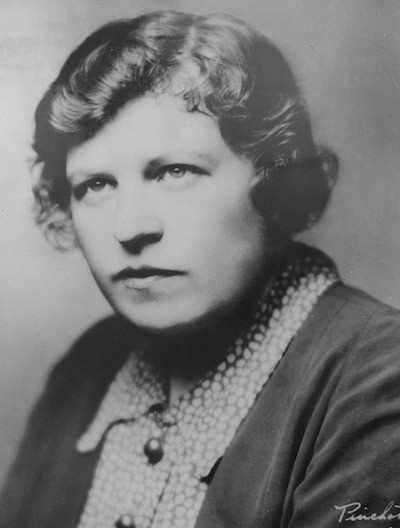
. . . . . . . . .
What was your research process like for this biography?
I absolutely loved the research. First, research is like a treasure hunt, with each stop offering tantalizing new clues to lead you on. Second, I was astounded by the enthusiasm and generosity of archivists, librarians and hobbyist historians all over the country. I owe so much to the memory-keepers who boosted me along.
I started locally for an article about Rachel that would appear in Port City Life Magazine. Great Cranberry Island Historical Society had a dedicated Rachel Field and “Hitty” corner (Hitty is the doll protagonist of her Newbery-winning book). That launching point led me to Hitty fans around the country who connected me to more archive sources.
By the time I finished the research for that short article, I had enough material for eight articles, so I thought I’d take another year and write the full biography. Ha! Lucky I was so naïve or I might have never begun.
I ended up exploring archive collections in Maine, Massachusetts, New York, Connecticut, Louisiana, California, and more. A mentor I met along the way gave me one of my most important pieces of advice. I asked him, years into the work, “How do I know when I’m done with the research?” He answered, “You’re never done. You just have to start writing.”
. . . . . . . . .
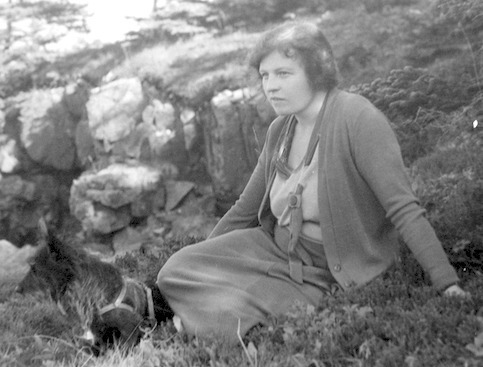
Rachel and Spriggin on Sutton Island, 1929
Photo: Schlesinger Library, Radcliffe Institute for Advance Study, Harvard University
. . . . . . . . .
The Field House blends biography and memoir creating a unique and more contemporary take on a traditional biography. Why did you choose this approach?
One unusual thing about this project is that I was invited to give presentations about Rachel Field years before the book came to be – not just around Maine, but in her hometown of Stockbridge, Massachusetts and at a literary conference in Tampa, Florida. At every speaking engagement, without fail, the thing that most captivated audiences was the interweaving of my life and Rachel’s, what we shared, even beyond an island house in Maine.
I was determined to make this book about Rachel, not about me, but I eventually became convinced that the best way to garner attention for Rachel’s story was to add an extra layer of storytelling. At the Iota Short Prose writer’s conference one summer, a writing prompt asked us to write a letter to someone who would never read it, so I wrote a letter to Rachel Field. That exercise blossomed into a revelation. Here was a way to dovetail my story into Rachel’s. I began composing letters to go with each chapter of the book.
You say that among other things, The Field House is a book about beauty. Will you explain this?
It becomes clear in the book that I fall in love with my biographical subject. Rachel Field, first and foremost, was a poet, with a poet’s sensibilities. She was transported by beauty, haunted by it at times, but always, always deeply moved by beauty – in a seagull’s wing underlit by the setting sun, in a turn of phrase, in the face of a dear friend.
Rachel despaired of her own physical appearance – a weighty, overlarge frame and heavy masculine features. However, in her writing and her spirit, she shimmered with a beautiful, enchanting spirit. That is what I try to evoke by bringing her light back to life in this book. If we could all be infused with Rachel’s essence, the world would be a more beautiful place.
. . . . . . . . .
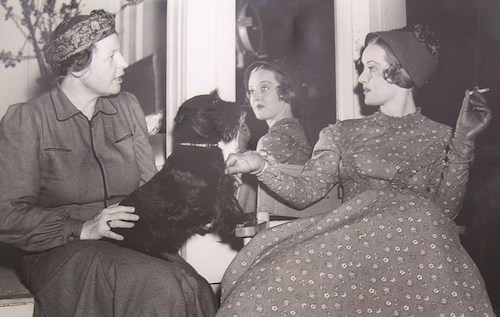
Rachel Field with Bette Davis
during the filming of All This and Heaven Too
. . . . . . . . .
How has your life been affected by this project?
Where to begin? I suppose I can boil down the effect this project had on my life into two categories. First, Rachel inspired me to push my writing further, to reach a place where I could finally call myself a writer without blushing and kicking my toe against the ground. Maybe I would have found my way here without her, but after decades of slow progress my writing accelerated with Rachel’s arrival on the scene. She was the source of my first glossy magazine success.
The wish to finish her story was the impetus behind my application to an MFA program. I became an “expert” guest speaker thanks to her. My first commissioned piece – a ghost story produced by a professional theatre company – was based on her biography of Captain Samuel Hadlock, Jr. And of course, she is the source of my first published book.
Second, all the years I spent in Rachel’s company led me to a greater acceptance of my own life’s journey. Rachel and I were both drawn to writing and to motherhood. She immersed in the former and struggled to achieve the latter; I did the opposite. I sometimes felt I’d wasted my productive years not writing. Immersed in Rachel’s life, I recognized that my path, my choices, were valid ones, to be celebrated. Each of us realized our goals in our own time and fashion. In a way, our lives complement, uplift, and validate each other. She made me feel completed in a way I never had before.
ROBIN CLIFFORD WOOD has a BA from Yale University, an MA in English from the University of Rochester, and an MFA in creative writing from the Stonecoast program at the University of Southern Maine. During twenty-five years as a full-time mom, she published local human-interest features in New Hampshire, New York, and Massachusetts and spent seven years as a regular columnist, first in Massachusetts, then for Maine’s Bangor Daily News. She began teaching college writing in 2015.
Her articles have appeared in Port City Life magazine, Bangor Metro, and Solstice literary magazine, which published her powerful essay “How Do You Help Your Parents Die?” in its spring 2019 issue. Her award-winning poetry received national recognition from the 2020 Writer’s Digest Competition. Wood lives in central Maine with her husband and dogs. The Field House is her first book. For more information, visit robincliffordwood.com.
. . . . . . . . .
*These are Bookshop Affiliate and Amazon Affiliate link. If a product is purchased by linking through, Literary Ladies Guide receives a modest commission, which helps maintain our site and helps it to continue growing!
The post The Field House by Robin Clifford Wood — Rediscovering Rachel Field appeared first on Literary Ladies Guide.
May 4, 2021
Shirley Jackson: Mother of the Fictional and Real-Life Teen
This look at the depiction of adolescent and teen girls in the fiction and nonfiction of American author Shirley Jackson is excerpted from Girls in Bloom: Coming of Age in the Mid-20th Century Woman’s Novel by Francis Booth, reprinted by permission.
In the works of Shirley Jackson (1916 – 1965), there is an absence of sex of any kind, other than the veiled implication that Natalie Waite in Hangsaman has had a sexual experience that she does not remember, and which is not described in the novel.
One reason for this lack of sex among her teenage protagonists might be that Jackson had daughters of her own who might read her work. She did know a lot about the adolescent girl; she wrote several of them into her novels and stories, chief among them, the aforementioned Natalie Waite; Harriet Merriam (The Road Through the Wall), and Merricat Blackwood (We Have Always Lived in the Castle).
Northern GothicJackson’s style might be called Northern Gothic, in contrast to Flannery O’Connor’s Southern Gothic. Jackson’s Gothic is much cooler and less febrile than O’Connor’s, the horror is more subtle and told with a flat, deadpan manner.
The work that first made Jackson (in)famous was the short story “The Lottery,” first published in the New Yorker in 1948, in which we slowly come to realize that the apparently very normal inhabitants of the apparently very normal village annually select by lottery one of their neighbors to stone to death; it is the banality, the ordinariness of the people and their environment – what Hannah Arendt later called “the banality of evil” – that makes it so shocking; Jackson was deluged with hate mail of a very vicious and personal nature.
Her most famous novel, The Haunting of Hill House, is an equally subtle and slow-revealing story but this time a full-length novel, that Stephen King praised as one of the greatest of American ghost stories and that has been compared with The Turn of the Screw for its pervasive atmosphere of ambivalent menace. King especially praised the book’s first line: “No live organism can continue for long to exist sanely under conditions of absolute reality.” King said, “there are few if any descriptive passages in the English language that are finer.”
One of Jackson’s most Gothic novels is The Sundial, which Jackson herself called “a nasty little novel full of mean people who hate each other.” As in We Have Always Lived in the Castle and The Haunting of Hill House, a grand old house is at the center of the story and a character in its own right. This was a key trope in Gothic novels with malign settings like the Castle of Otranto, Castle Udolpho, and Northanger Abbey, though the latter turns out not to be malign at all.
In Jackson’s version of the Gothic castle lives one of her most memorable creations, the appalling ten-year-old Fancy Halloran (another version of the name Frances) of The Sundial (1958) not yet a teenager and nowhere near to coming of age but fully realized in wickedness; a kind of literary version of Wednesday Addams. (The Addams Family, with their own spooky, Gothic house, had started appearing in The New Yorker in 1938.)
Young Mrs. Halloran, looking after her mother-in-law, said without hope, “maybe she will drop dead on the doorstep. Fancy, dear, would you like to see Granny drop dead on the doorstep?”
“Yes, Mother.” Fancy pulled at the long black dress her grandmother had put on her…
“I am going to pray for it as long as I live,” said young Mrs. Halloran, folding her hands together devoutly.
“Shall I push her,” Fancy asked, “Like she pushed my daddy?”
“Fancy!” said Mrs. Ogilvie.
“Let her say it if she wants,” young Mrs. Halloran said. “I want her to remember it, anyway. Say it again, Fancy baby.”
“Granny killed my daddy,” said Fancy obediently. “She pushed him down the stairs and killed him. Granny did it. Didn’t she?”
. . . . . . . . .

Girls in Bloom by Francis Booth on Amazon*
Girls in Bloom on Amazon UK*
Girls in Bloom in full on Issuu
. . . . . . . . .
By the time her later novels were being published, Jackson had teenagers of her own and knew how to write them. As well as publishing her serious work, both novels and stories, she regularly contributed frothy vignettes of her own family life to women’s magazines, which were collected as Life Among the Savages (1953) and Raising Demons (1957); the demons of course being her own children: Laurence; Joanne; Sally and Barry, in that order.
Joanne, known in the family as Jannie, is a keen reader, unlike her older brother – in this they are very much like many of the brother/sister pairs in Girls in Bloom. Jannie is also like many of her fictional counterparts in that she is obsessed with Little Women to an extent that even her writer mother finds worrying. In one scene Jackson calls to her from the foot of the stairs.
There was a pause and then Jannie said, sniffling, “Yes?”
“Good heavens,” I said, “are you reading Little Women again?”
Jannie sniffled. “Just the part where Beth dies.”
“Look,” I said, “the sun is shining and the sky is blue and –”
Later they have a full-blown mother/daughter bonding session over that book and writing in general; again like many of her fictional counterparts, Jannie wants to be a writer, as does Jackson’s daughter Sally: Jackson’s late essay ‘Notes for a Young Writer’ was ‘originally written as a stimulus to my daughter Sally, who wants to be a writer.’ Although not obviously a tomboy herself, Jannie, like most girls, identifies most closely with Jo March.
I was sitting at the kitchen table grating potatoes for potato pancakes and was thus a wholly captive audience when Jannie came in from school with her arithmetic and spelling books, and, of course, Little Women. She put the books down, took off her jacket and hat, took an apple, and sat down at the table across from me. “I’ve been meaning to ask you for a long time,” she said. “Suppose I wanted to write a book. Where would I begin?”
“At the beginning,” I said smartly; I had just grated my knuckle.
“I wish Laurie and Barry were girls,” she said.
“Why on earth?”
“And Sally’s name was Beth.”
“Why put the whammy on Sally? Why don’t you be Beth?”
“I’m Jo.”
“And Laurie is Meg? And poor Barry has to be Amy?”
“If they were only girls.”
“And does that make me Marmee? Or can I be the old cook?”
“Hannah? When I write my book –“
“I’d rather be crazy old Aunt March, come to think of it. Who do you like for Professor Bhaer?”
Jannie turned pink. “I didn’t really think about that yet,” she said.
Charitably, I changed the subject. “Don’t you have any homework to do?” I asked.
She sighed. “I’ve got to write a book report,” she said. “That’s why I’d like to write a book, so then I could write a book report on that, and save all that time.”
. . . . . . . . . .
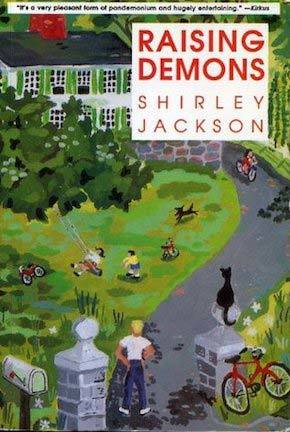
Shirley Jackson on Motherhood, Experience, and Fiction Writing
. . . . . . . . . .
As well as contributing these domestic scenes to various magazines, Jackson also wrote and published several essays about the joys and perils of being the mother of an adolescent girl. In “Mother, Honestly!” She talks about being the mother of a twelve-year-old girl and captures perfectly the sudden transition from girl to about-to-be woman.
Those mothers who have lasted till a child has reached twelve have themselves pretty well in hand… now that the girl is twelve she is practically grown-up and can take care of herself and begin to be responsible.
I know mothers who keep telling themselves and telling themselves it is like that, their voices getting more and more shrill, wringing their hands and grinding their teeth. Now the girl is twelve, they say, she’s practically grown-up. She is. She is. She is.
That’s me.
Last year I sent my daughter, an agreeable child who liked to play baseball and thought boys were silly, off to camp. I got back – and it only took two months – a creature who slept with curlers in her hair, bought perfume from the five-and-ten, and addressed me as nothing but “Mother, honestly”
… She is growing up and pretty soon now she will start being responsible and neat and sensible. I must be more tolerant… One thing really bothers me. I recently met a mother whose daughter is sixteen. When I remarked casually that I would be happy when my daughter outgrew her present stage and became more sensible and responsible, she just looked at me for one long minute and then began to laugh. She laughed and laughed and laughed. As I say, that bothers me a little.
Jackson later wrote an article titled “On Girls of Thirteen” in which she talks about the mythical girl to whom her daughter always refers when she is forbidden to do something. This girl is “thirteen years old. She is allowed to cut her own hair. She is also allowed to wear lipstick all the time; she uses bright red nail polish and heavily scented bath salts, and stays up as late at night as she pleases.”
This imaginary girl goes to any dance she likes and stays out as late as she likes afterward, goes to the movies on school nights, and is allowed to walk out with a boy without having to introduce him to her parents first. “I don’t know her name or where she lives, but I’d like to get my hands on her. Just for about five minutes. She is the lowest common denominator, the altogether anonymous ‘everyone else’ who rules the lives of thirteen-year-old girls and their miserable mothers.”
Betsy of “The Missing Girl”
There is a thirteen-year-old girl, Betsy, in Jackson’s story “The Missing Girl,” set in the Phillips Education Camp for Girls Twelve to Sixteen; both the story and the setting are rather reminiscent of Eudora Welty’s story Moon Lake. She is as awkward and as uncommunicative with adults as Jackson’s non-fictional thirteen-year-olds. Betsy, who has roomed with the eponymous missing girl, is being questioned by the chief of police. She tells him the missing girl “said she had something to do.”
The chief asks Betsy how she said it; perhaps she was lying? ‘“She just said it,” said Betsy, who had reached that point of stubbornness most thirteen-year-old girls have when it seems that adult obscurity has passed beyond necessity. “I told you eight times.” Later in the same story, the librarian tells the chief, “one girl is much like another, at this age. Their unformed minds, unformed bodies, their little mistakes.”
Memories of Jackson’s own teen years
Finally, in Jackson’s essay ‘All I Can Remember’ which was printed as the preface to the story collection Just an Ordinary Day, she talks about her memories of herself as a teenager. She begins: “All I can remember clearly about being sixteen is that it was a particularly agonizing age.”
Like some of her characters, and many others in Girls in Bloom, she is a voracious reader and this is the age at which she decides to become a writer. Again, Jackson perfectly captures the awkwardness of the teenager and the difficulty of communication between herself and her parents; the teenage Jackson in this description very closely matches Harriet Merriam in The Road Through the Wall.
I also remember such a tremendous and frustrated irritation with whatever I was reading at the time – heaven knows what it could have been, considering some of the things I put away about that time – that I decided one evening that since there were no books in the world fit to read, I would write one.
After dismissing the poetic drama as outmoded and poetry as far too difficult, I finally settled on a mystery story as easiest to write and probably easiest to read…
After the first two or three murders, the story got rather sketchy, because I had not enough patience to waste all that time with investigation, so I put the names of my characters together and took my manuscript downstairs to read to my family.
My mother was knitting, my father was reading a newspaper, and my brother was doing something – probably carving his initials in the coffee table – and I persuaded them all to listen to me; I read them the entire manuscript, and when I had finished, the conversation went approximately like this:
brother: Whaddyou call that?
mother: It’s very nice, dear.
father: Very nice, very nice. (to my mother) You call them about the furnace?
brother: Only thing is, you ought to get all those people killed. (raucous laughter)
mother: Shirley, in all that time upstairs I hope you remembered to make your bed.
I do not remember what character eventually came out of the hat with blood on his hands, but I do remember that I decided never to read another mystery story and never to write another mystery story; never, as a matter of fact, to write anything ever again. I had already decided finally that I was never going to be married and certainly would never have any children.
. . . . . . . . . .
Contributed by Francis Booth,* the author of several books on twentieth century culture:
Amongst Those Left: The British Experimental Novel 1940-1960 (published by Dalkey Archive); Everybody I Can Think of Ever: Meetings That Made the Avant-Garde; Girls in Bloom: Coming of Age in the Mid-Twentieth Century Woman’s Novel; Text Acts: Twentieth Century Literary Eroticism; and Comrades in Art: Revolutionary Art in America 1926-1938
Francis has also published several novels: The Code 17 series, set in the Swinging London of the 1960s and featuring aristocratic spy Lady Laura Summers; Young adult fantasy series The Watchers; and Young adult fantasy novel Mirror Mirror. Francis lives on the South Coast of England. He is currently working on High Collars and Monocles: Interwar Novels by Female Couples.
. . . . . . . . .
*These are Amazon Affiliate links. If a product is purchased by linking through, Literary Ladies Guide receives a modest commission, which helps maintain our site and helps it to continue growing!
The post Shirley Jackson: Mother of the Fictional and Real-Life Teen appeared first on Literary Ladies Guide.
May 3, 2021
Beryl Markham, Aviatrix, Adventurer, Author of West with the Night
Beryl Markham (October 26, 1902 – August 3, 1986) is perhaps best remembered as a pioneering aviatrix, becoming the first person to fly solo across the Atlantic nonstop from Britain to North America. She was also a racehorse trainer and had torrid love affairs and tepid marriages, all of which she recounted in her famed 1942 memoir, West with the Night.
Born Beryl Clutterbuck, she seemed at first destined to lead the kind of life described in old English novels – an uneventful childhood in a grand country house; schooling in literature, language, and sewing by a Jane Eyre-like governess; attending swish parties and tea dances until the day a handsome man from a fine family proposes, and that would be that. Then, having babies, supervising the staff, gardening, and fox hunting for the rest of her life.
But Fate had other ideas. Beryl spent her childhood in Kenya, and grew up to breed champion racehorses and pilot planes. Encouraged by Antoine de Saint Exupery, she wrote what would become a classic memoir about Africa, West with the Night. This book, Ernest Hemingway opined, was so good it made him feel ashamed because “she can write rings around all of us who consider ourselves writers.” As is well known, Hemingway was rarely complimentary towards fellow writers.
Early lifeBeryl’s father, Charles Clutterbuck, a former military man who struggled financially, sought his fortune in East Africa. He bought a thousand acres, mostly heavy bush and open pasture, in Kenya’s Rift Valley. In 1906, he moved his wife and two small children there from the Midlands. Beryl was then was three years old. Her mother, Clara Agnes Markham, lasted only eighteen months in Kenya before returning to England with their son, Beryl’s brother Richard.
Beryl and her father were left to their own devices. She later explained she was raised “in a world without walls,” as her father was busy running the farm and raising horses while she hunted and played with the tribesmen working on the farm — the Nandi, Kipsigis, Luo, Kikuyu, and Masai. She learned all of their languages, with Swahili becoming her first tongue.
Later, Beryl was sent to boarding school in Nairobi. After three years, she was expelled for being unruly and fomenting revolt among her fellow pupils. Her father read her the classics as she grew up, and she continued this habit into adulthood. This pastime would eventually serve her writing well.
By the age of eighteen, Beryl become the first woman to become a licensed horse trainer. Her reputation grew as her stock won more races, including the prestigious Kenya St. Leger. Women were still not licensed in England to train so she was a true pioneer.
Also at age eighteen, she married an older wealthy neighbor named Jock Purves. According to Mary Lovell, who wrote the excellent biography, Straight On Till Morning, the rumor was that her father married her off due to financial problems with the farm brought on by drought. Beryl never confirmed this. The loveless match lasted only two years.
By then, Beryl’s father had gone broke and moved to Peru to raise thoroughbreds. She was miserable with her husband, so she focused on her horses, socialized with the Happy Colony set of Nairobi (including Karen Blixen — better known by her pen name as the writer Isak Dinesen — and Denys Finch Hatton).
. . . . . . . . . .
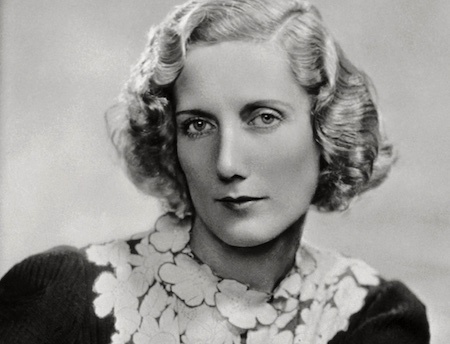
. . . . . . . . . .
Learning to fly, and a royal romanceAt age twenty-four, she sought a divorce. By then she had started to fly, mentored by pilots like Finch Hatton. As Blixen’s love affair with Finch Hatton wound down, Beryl took up with him herself. Finch Hatton wasn’t the marrying kind, and eventually she married Mansfield Markham, an English aristocrat, by whose surname she became known.
Beryl Markham’s personal life grew ever more interesting; many find her life as thrilling as her writing. With her white-blonde hair, lithe build, and cover-girl good looks, paramours were easy to come by. She had an affair with Prince Henry, the Duke of Gloucester (the Prince of Wales brother), and the wags claimed he was the father of her son, Gervase.
When word got around, Henry was forced to end the romance, and Beryl was given a small annuity for the rest of her life. This was fortuitous; like her father, she was terrible with money. Marriage wasn’t her strong suit, either. Her marriage to Mansfield Markham failed, exacerbated by rumors of her liaison with the Duke.
Beryl needed to find a way to make a living. She obtained a pilot’s license and spent the next several years, from 1931 to 1936, delivering mail, ferrying passengers, and scouting elephants for safaris all over Sudan, Kenya, Tanzania, and Zimbabwe. Many of these flights are the basis of stories in West with the Night.
. . . . . . . . .
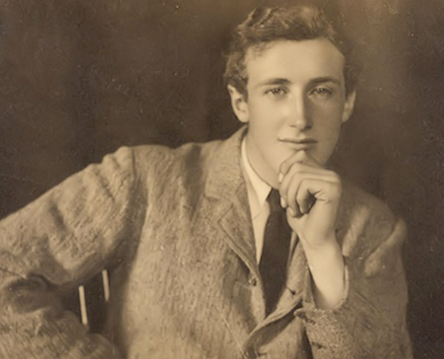
Denys Finch Hatton
. . . . . . . . .
Beryl met Denys Finch Hatton when she was about eighteen, and became a friend of both his Karen Blixen’s; they later ran in the same social circles. Blixen and Hatton were together about six years, however, Blixen was very possessive and wanted to get married. Finch Hatton wasn’t the marrying kind, and over time, this caused a terrible rift between them.
As the relationship continued to deteriorate, Finch Hatton moved out of Blixen’s farm to the Muthaiga Club in Nairobi, where Beryl Markham also happened to be staying after returning from England. Her affair with Prince Henry had come to an end — at the Queen’s insistence. But Beryl and Finch Hatton’s affair had started before this, and they were very well suited. She considered him, according to biographer Mary Lovell, a mentor, brother, lover, friend; in her eyes, as Lovell says, she was the only man who could shore up against her father.
Finch Hatton helped Markham in many ways; he inspired her to read the classics, learn how to educate herself, and enjoy life. He also helped her with her flying. The affair ended when he invited her to fly to the coast and visit his house. Her aviation teacher had a premonition and asked her not to make that trip, confident that she was close to being able to go solo.
Beryl she stayed behind. A few days later, Finch Hatton and his servant were killed upon take-off in a fiery crash. His death came at the height of their romance, so what would have happened next, we can only speculate.
From “Birth of a Life,” a chapter in West with the Night where Markham writes about learning to fly and her friendship with Denys Finch Hatton:
“Denys was a keystone in an arch whose other stones were other lives. If a keystone trembles, the arch will carry the warning along its entire curve, then, if the keystone is crushed, the arch will fall, leaving its lesser stones heaped close together, though for a while without design. Denys’ death left some lives without design, but they were rebuilt again, as lives and stones are, into other patterns.”
He had been one of her early mentors for flying and she went on to great, courageous accomplishments in aviation. Finch Hatton had been instrumental in helping her to believe in herself.
. . . . . . . . .
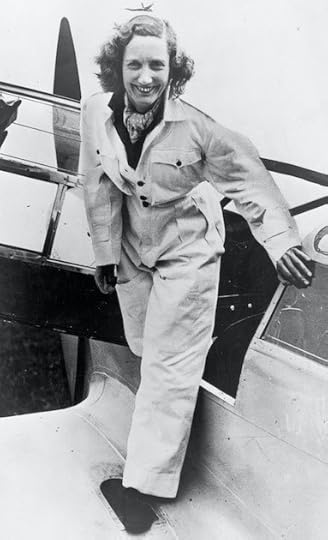
Beryl Markham in 1936
. . . . . . . . .
In 1936, Markham became the first woman to travel across the Atlantic, east to west, and the first pilot to fly from England to North America. Her plane, The Messenger, was supposed to land in New York, but after 21 hours and 25 minutes, she crash-landed in Nova Scotia, miraculously surviving with only a gash to the forehead.At first it was assumed that her plane had run out of fuel, though what actually happened was that the gas line had frozen.
Beryl Markham became an international star overnight, prompting her to begin writing West with the Night. Published in 1942, the book spent many weeks on The New York Times bestseller list as Number #1. These two glowing reviews were typical of the book’s reception:
“When a book like Beryl Markham’s West with the Night comes along it leaves a reviewer very humble. Words of praise used for other works seem trite and thin. For West with the Night is more than an autobiography; it is a poet’s feeling for her land; an adventurer’s response to life; a philosopher’s evaluation of human beings and human destinies.” (Rose Field, Books, July 5, 1942)
“Beryl Markham does more than tell of Africa. With admirable modesty, she offers us a thrilling as well as appealing saga of a very valiant and very human woman, philosophically pitting her skill, bolstered by limitless faith in herself, against relentless Nature in all her multifarious disguises, in the dank jungles, the desert wastes, and the boundless skies.” (Linton Wells, Saturday Review of Literature, June 27, 1942)
Fame and fortune came her way, followed by a return to love, when she met the charming Raoul Schumacher in Los Angeles. Their meeting was a coup de foudre. The couple moved from New York to New Mexico then back to California, smitten, writing together, and married.
When the U.S. entered World War II, West with the Night practically vanished. The public was no longer interested in reading odes to Africa and Beryl’s adventures. She received royalties for a few years, providing a small income, and eventually, the book went out of print.
Beryl’s husband, Raoul Schumacher, claimed to be a Hollywood writer, biographer Lovell found no listings of employment at the studios. He also claimed to be a ghostwriter, but there’s no evidence of this, either. To his credit, he was an excellent editor. He and Beryl began collaborating on short stories, published under her name in magazines like The Saturday Evening Post and Cosmopolitan. Eventually, Lovell compiled the stories in the collection The Splendid Outcast.
The pay for the short fiction was generous, so the couple, still madly in love, kept writing and throwing marvelous parties. However, Schumacher’s drinking got out of hand, and eventually, this marriage, too, was doomed to fail. By 1948, Markham moved back to Kenya to train racehorses and seek a divorce.
Rumors she had not written West with the Night began to surface, and dogged her for decades. The gossip was brutal — particularly the claim Markham was nearly illiterate and couldn’t have written such a book. Contrary to this absurd claim, anyone who is illiterate couldn’t possibly earn a commercial pilot’s license, nor speak five languages. Markham had many mentors, including her father as well as Denys Finch Hatton, who encouraged her to educate herself.
A biographer’s perspective
Mary Lovells’ biographies are objective, though she set out to destroy her subjects. After all, they’re usually no longer alive to defend themselves. Lovell sets out to tell a tale based on fact, not smash our idols forevermore; the reader has at least a modicum of respect for the subject.
Beryl was indeed a lousy mother — her son Gervase was raised by her mother-in-law for the most part — and she had many liaisons. She also blurred her vignettes sometimes and may have exaggerated— though this is poetic license most writers take advantage of to craft a compelling narrative.
After much research, Lovell was convinced that Beryl was the true author of West with the Night, and Schumacher helped with editing (for which Markham later thanked him for in her acknowledgments). Lovell writes that there are even surviving manuscript pages with his edits. and most of the book was written when Beryl was staying in the Bahamas, later sending large parts of the manuscript to her publisher in New York; Schumacher never visited his wife in the Bahamas. Nevertheless, Schumacher was broken by his problems and the divorce, so he and his friends may have started the hearsay.
. . . . . . . . . . .
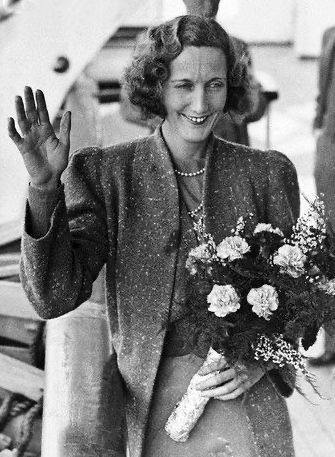
. . . . . . . . . . .
Rediscovery of West with the NightWest with the Night remained out of print until 1983 when fate intervened. By then, Beryl was back in Kenya living off a small trust fund funded by the royal family. At Christmas, according to Lovell, a stranger had written her with an interesting story. The letter writer, George Gutekunst, a restaurateur from California, had been fishing with Ernest Hemingway’s son Jack, who encouraged him to read his father’s letters (“They’re very revealing.”). When he did, he noticed Hemingway’s comment to his editor Maxwell Perkins about Beryl Markham and West with the Night.
Intrigued, Gutekunst was able to find one lonely copy of West with the Night in a library and read the book in one sitting. Astounded, he immediately read it again, believing he had rediscovered literary gold. He showed the book to Evan Connell, the author of Mrs. Bridge; they sent it to North Point Press. West with the Night was reissued to great acclaim and the grapevine about authorship was reignite. Lovell’s Straight On Till Morning, published in 1987, has put all the rumors to rest.
The chapters in West with the Night could each stand on their own as short stories. The prose is elegant (perhaps Saint Exupery’s influence) and lovingly detailed. Passages are infused with haunting phantasmagoric beauty, bringing to life a world that no longer exists.
The publishers and editors at North Point Press secured the U.S. and British rights and the book was reissued in 1983. West with the Night was well received by the critics again, although talk re-emerged that Raoul Schumacher was the author — there was a Vanity Fair article written by one of Raoul’s friends claiming this.
The response to the reprint was thunderous. The first printing of her book had been 5,000 in 1983, a year later 9,100 whereas in 1986 North Print sold 15,000 quickly and had to reprint 100,000 more. Beryl Markham did receive the royalties due her.
What really helped the book was George Gutekunst (who had found out about her from Hemingway’s letters) also raised money for a documentary on her life from the likes of TV station KQED in San Francisco ; he also put up at least $20,000 of his own money. “World Without Walls” was aired in the Bay area in 1986.
Though Beryl died in Kenya in 1986, it’s likely that she saw the film because she cooperated with the material and got a lot of attention from reporters afterwards. Around the time of her death, there was an effort to make a movie version of West with the Night though that hadn’t come to fruition. In 1988 director Tony Richardson made a TV movie about her called “A Shadow on the Sun.”
. . . . . . . . .

West with the Night on Bookshop.org*
Beryl Markham page on Amazon*
. . . . . . . . .
For writers with interesting lives, stories can write themselves. Beryl Markham certainly had rich subject matter – being attacked by a lion as a child; saving a stranded pilot from the desert; the death of the love of her life Finch Hatton (on a flight she was supposed to take with him); the list is endless.
Adventurous, fearless, Beryl Markham shattered glass ceilings long before the term had been coined. To borrow from William Butler Yeats, she had a fascination with what is difficult, and she has bequeathed her memories and experiences in her fine book and stories to generations of readers.
The last word comes from the eponymous chapter “West with the Night”:
“You can live a lifetime and, at the end of it, know more about other people than you know about yourself. You learn to watch other people, but you never watch yourself because you strive against loneliness. If you read a book, or shuffle a deck of cards, or care for a dog, you are avoiding yourself. The abhorrence of loneliness is as natural as wanting to live at all. If it were otherwise, men would never have bothered to make an alphabet, nor to have fashioned words out of what were only animal sounds, nor to have crossed continents – each man to see what the other looked like.”
Contributed by Tyler Scott. Tyler lives in Blackstone, Virginia with her husband and Norfolk Terrier. Her essays and articles have appeared in numerous magazines and newspapers and her novel The Excellent Advice of a Few Famous Painters* is available on Amazon.
Sources
Lovell, Mary. Straight On Till Morning, The Life of Beryl Markham. New York: St. Martin’s Press, 1987Markham, Beryl. West with the Night. San Francisco: North Point Press, 1983Markham, Beryl. The Splendid Outcast, Beryl Markham’s African Stories. San Francisco: North Point Press, 1987Historic Fiction
McLain, Paula, Circling the Sun . New York: Ballantine Books, 2015More about Beryl Markham
Wikipedia Reader discussion on Goodreads The Many Lives of Beryl Markham. . . . . . . . . .
*These are Bookshop Affiliate and Amazon Affiliate links. If a product is purchased by linking through, Literary Ladies Guide receives a modest commission, which helps maintain our site and helps it to continue growing!
The post Beryl Markham, Aviatrix, Adventurer, Author of West with the Night appeared first on Literary Ladies Guide.
May 2, 2021
The Age of Phillis by Honorée Fanonne Jeffers: A review
The Age of Phillis by Honorée Fanonne Jeffers illuminates the life and significance of Phillis Wheatley Peters, the enslaved African American whose 1773 book of poetry, Poems on Various Subjects, Religious and Moral, challenged prevailing assumptions about the intellectual and moral abilities of Africans and women.
In The Age of Phillis (Wesleyan University Press, 2020), which won the 2021 NAACP Image Award for “Outstanding Literary Work—Poetry” and was long-listed for the National Book Award, Jeffers portrays the life of the poet both before she was taken from her home in West Africa and throughout her lifetime in the United States, first enslaved and later free.
I became aware of the book by attending a virtual reading and can attest that Jeffers’s reading style is dynamic and worth searching out in audio and video recordings on the internet.
Jeffers, recipient of the 2018 Harper Lee Award for Literary Distinction (a lifetime achievement award), presents not only Wheatley, but many others of her era, enslaved and free, through one hundred poems that draw on primary sources to provide insight not only into the circumstances of Wheatley’s life, but into the people and conditions that condoned the horrors of slavery.
Jeffers portrays the ways that these conditions affected Phillis even when she is not directly mentioned. The poem “Catalog: Water,” describes the 1781 voyage of the slave ship Zong, in which well over one hundred (estimates range between 130 and 180) living enslaved people were thrown overboard to drown, in verses that appear arranged on the page to evoke a sailing ship’s tacking against the wind.
Jeffers begins:
I know I’ll try your patience,
As I have for several years:
When I talk of slavery,
And ends by saying
Don’t you know that
Drowned folks will rise
To croon signs to me?
And anyway, I didn’t tell
This story to please you.
I built this altar for them.
. . . . . . . . . .
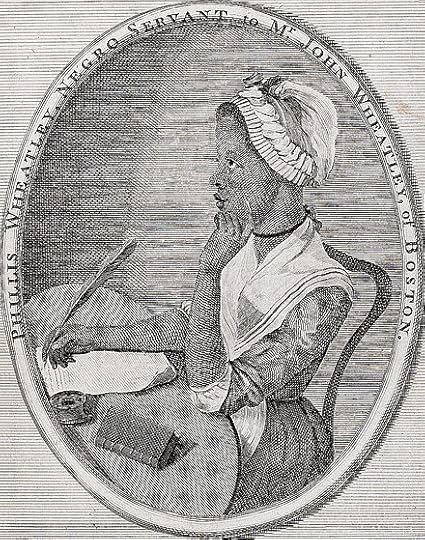
More about Phillis Wheatley
10 Poems by Phillis Wheatley
. . . . . . . . . . .
Jeffers employs a variety of poetic forms to present a largely imagined biography of Wheatley, drawing on information she gleans from existing sources to postulate the area of her birth (likely the West African region of Senegambia), her religion (likely Muslim), her life with the Wheatleys (who purchased her from a Boston slave market), her friendship with Obour Tanner (a woman enslaved in nearby Rhode Island), her travel to London following the publication of her book, and her courtship and marriage to John Peters.
I especially like Jeffers’s use, at times, of different typefaces to indicate a double consciousness on the part of Wheatley and others—a consciousness of her African heritage as well as of her circumstances in colonial Boston. In essence, Jeffers conveys the necessity of code-switching. “Lost Letter #14: John Peters, Boston, to Phillis Wheatley, Boston” briefly excerpted here, offers one example:
… Miss Wheatley,
will you take my favor to heart? If you will not
cherish me, at least, will you not discard?
[…here is a black
man in front of you I am not afraid to love you
in the old african ways here is someone your father
would accept woman I am asking for your hand]
Wheatley’s contemporaries
Other poems portray the struggles of Phillis’s contemporaries—including those of Elizabeth Freeman, who sued for her freedom; of Ona Judge, who escaped enslavement in the home of George and Martha Washington; and of Belinda Sutton, who won a pension from the state of Massachusetts for the years in which she was enslaved. We learn of Black men who fought for American independence and of those who won freedom in Canada by fighting for the British.
In one particularly striking poem, Jeffers portrays George Washington’s consternation over how to respond to a poem and a letter he received from Phillis:
Her letter trembles in my hand, dances
with confusion, swaying past the stars—
… and makes it clear that Phillis is a challenge to that other age, the term often used to describe the era of the American Revolution—the Enlightenment, or the Age of Reason, and its failure to dismantle slavery:
Her quill and life defy my age’s Reason.
The word Reason can be read in different ways in this line: it can suggest common sense and might at the same time refer to the rationale for enslavement—white supremacy. Either way, the poem is a brilliant response to one of Wheatley’s most famous poems — “To His Excellency General Washington.”
I’ve read this oft-anthologized poem many times. When I was younger, the old-fashioned language bored me. Later, it made me uncomfortable to read an enslaved woman praising a white male slaveowner in the elevated language of heroic couplets—but Jeffers’s depiction of Washington’s discomfiture on receiving Wheatley’s poem transforms it from an act of obeisance to one of self-assertion.
A multiplicity of meanings
What I appreciated most about Jeffers’s book was the multiplicity of meanings I found in the title. Most obviously, “the age of Phillis” refers to the era in which Phillis lived and wrote. But the title poem, one of the most moving in the book, begins by asking:
How old was the child when she first laughed/in her master’s kitchen?
and ends by asking
And what was the age
of Phillis when she stopped turning East,
thinking of water in faithful bowls
of her parents,
of love only ending in death?
There is no such age. There never will be
though a sister’s mouth might tell you lies.
But ultimately, Jeffers implies that the age of Phillis is still with us by presenting many poems in the form of blues and by drawing on the work of the Black poets and artists for whom Wheatley opened the way.
Anyone who picks up this book will benefit from the notes on the poems, as Jeffers explains in them the connections of various poems to the work of those such as June Jordan, Romare Bearden, Langston Hughes, Robert Hayden, Lucille Clifton, Elizabeth Alexander, Audre Lorde, Rita Dove, Nikki Giovanni, and Paul Lawrence Dunbar.
. . . . . . . . . .
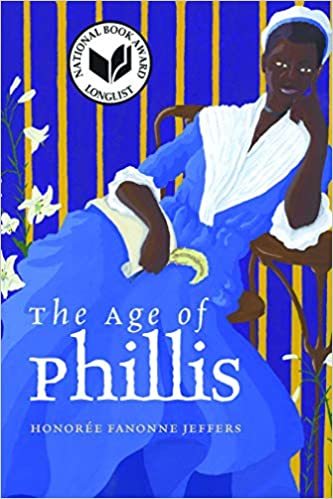
The Age of Phillis on Bookshop.org*
The Age of Phillis on Amazon*
. . . . . . . . . .
Finally, this remarkable book ends with a 20-page essay titled “Looking for Miss Phillis,” in which Jeffers describes her fifteen-year search for historical documentation into the life of Wheatley and those she knew. What she finds leads her to question the reliability of the author of the most frequently cited source on Wheatley, Margaretta Matilda Odell, a white woman who identified herself as the relative of Susanna Wheatley, Phillis’s owner. Odell wrote about the poet fifty years after Phillis’s death.
While Odell offers Phillis’s achievements as an argument against slavery, Jeffers points out that her depiction of John Peters as abusive and untrustworthy is contradicted by the historical record. Jeffers speculates that Odell might have perceived Peters, who tried and failed in several enterprises, including law, commerce, and real estate, as an “uppity” man, but in the present day, one can’t help but wonder about the role of racism in his failures.
While Odell claims that Peters abandoned Phillis, Jeffers finds evidence that the man was in debtors’ prison, likely the result of his business failures. Thus Phillis, despite her genius, faced the same systemic financial and legal barriers that hinder many African American people today.
The combination of the poems, the notes on the poems, and the essay add power to this unusual book and pave the way for a reinterpretation of Wheatley’s poems that acknowledge her true circumstances before, during, and after her enslavement. What might appear to be a collection of poems inspired by Wheatley and her time demands to be read as a unity, much like a novel or biography.
Phillis Wheatley has been called a genius for her mastery of traditional poetic forms despite her arrival in Boston with not a word of English or any level of literacy. Yet Jeffers’s depiction asks us to attribute yet another form of genius to Wheatley — her ability to master the code-switching that must have been essential to her survival and her poetic and public achievements. Jeffers has another book forthcoming this May: her first novel, The Love Songs of W.E.B. DuBois. I suspect I am only one of many who cannot wait to read it!
Contributed by Lynne Weiss: Lynne’s writing has appeared in Black Warrior Review; Brain, Child; The Common OnLine; the Ploughshares blog; the [PANK] blog; Wild Musette; Main Street Rag; and Radcliffe Magazine. She received an MFA from the University of Massachusetts at Amherst and has won grants and residency awards from the Massachusetts Cultural Council, the Millay Colony, the Vermont Studio Center, and Yaddo. She loves history, theater, and literature, and for many years, she has earned her living by developing history and social studies materials for educational publishers. She lives outside Boston, where she is working on a novel set in Cornwall and London in the early 1930s. You can see more of her work at LynneWeiss.org.
. . . . . . . . . .
*These are Bookshop Affiliate and Amazon Affiliate link. If a product is purchased by linking through, Literary Ladies Guide receives a modest commission, which helps maintain our site and helps it to continue growing!
The post The Age of Phillis by Honorée Fanonne Jeffers: A review appeared first on Literary Ladies Guide.
May 1, 2021
Fearlessly Facing Aging: Poems by Grace Paley
A poet has the ability to bring to the light our most inexpressible fears and doubts. When the subject is aging – the subject most of us try to avoid – it is the poets we turn to find the comfort and the clarity we need. Grace Paley is one of the poets who can instruct the heart and mind on living with death, as evidenced by this selection of her poems on aging.
For the last ten years of her life, Grace wrote poetry on the complexities of living with death as we grow older. “Nature takes its course,” is how we have been instructed to perceive our passing, but what about our other contradictory emotions and realities.
What about our spouse — who will die first and how will the other carry on with daily life. What about our extreme grieving — for a sister or friend — and Grace’s manner of coping seems to be the wisest one: having intimate conversations with her sister — who had died before her – on how to cope with that day’s challenges. Then there is the misplaced grievance regarding our good steps to prolong our lives, only to be disappointed later on: nature does take its course and how we accept that is up to us.
. . . . . . . .
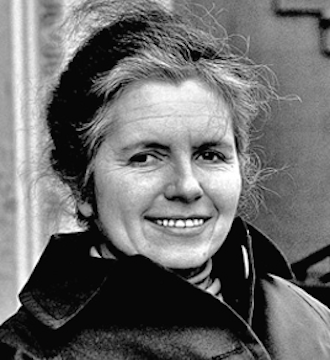
More about Grace Paley
. . . . . . . .
Grace Paley was born in the Bronx in 1922 and died in 2007 of breast cancer. She’s best known for her incomparable and experimental short stories. The stories from Paley’s short story collections, Enormous Changes at the Last Minute, The Little Disturbances of Man, and Later the Same Day, were published in one volume, Collected Stories, which was nominated for the Pulitzer Prize and the National Book Award.
Paley was also a renowned essayist and poet. Fidelity, her final collection of poems, was published in 2008, a year after her death in Vermont. The six poems collected here will offer the reader comfort and joy as we contemplate the final mystery of all, death and dying.
Further reading about Grace Paley as a poet
Poetry Foundation Poets House Grace Paley’s Political Poems. . . . . . . . . .
FearI am afraid of nature
because of nature I am mortal
my children and my grandchildren
are also mortal
I lived in the city for forty years
in this way I escaped fear
. . . . . . . . . .
My friends are dying
well we’re old it’s natural
one day we passed the experience of “older”
which began in late middle age
and came suddenly upon “old” then
all the little killing bugs are
baby tumors that had struggled
for year’s against the body’s
brave immunities found their
level playing fields and
victory
but that is not what I meant to
tell you I wanted to say that
my friends were dying but have now
become absent the word dead is correct
but inappropriate
I have not taken their names out of
conversation gossip political argument
my telephone book or card index in
what ever alphabetical or contextual
organizer I can stop any evening of
the lonesome week at Claiborne Bercovici
Vernarelli Deming and rest a moment
on their seriousness as artists workers
their excitement as political actors in the
streets of our cities or in their workplaces
the vigilant fasting praying in or out
of jail their lightheartedness which floated
above the year’s despair
their courageous sometimes hilarious
disobediences before the state’s official
servants their fidelity to the idea that
it is possible with only a little extra anguish
to live in this world at an absolute minimum
loving brainy sexual energetic redeemed
. . . . . . . . . .
Windowsthis eighty-year-old body is
a fairly old body what’s it
doing around the house these days
checking the laundry brooms
still work what’s for dinner
there are the windows look oh
beyond the river Smarts Mountain
with the sun’s help is recomposing all
its little hills never saw it that way
before windows the afternoon story
I had thought the tumors
on my spine would kills me but
the tumors on my head seem to be
extraordinarily competitive this week
For the past twenty or thirty years
I have eaten the freshest most
organic and colorful fruits and
vegetables I did not drink I
did drink one small glass of red
wine with dinner nearly every day
as suggested by The New York Times
I should have taken longer walks but
obviously I have done something wrong
I don’t mean morally or ethically or
geographically I did not live near
a nuclear graveyard or under a coal
stack nor did I allow my children
to do so I lived in a city no worse t
than any other great and famous city I
lived one story above a street that led
cabs and ambulances to the local hospital
that didn’t seem so bad and was
often convenient
In any event I am
already old and therefore a little ashamed
to have written this poem full
of complaints against mortality which
biological fact I have been constructed for
to hand on to my children and grand-
children as I receive it from my
dar mother and father and beloved
grandmother who all
ah if I remember it
were in great pain at leaving
and were furiously saying goodbye
. . . . . . . . . .
EvenEven at pain’s deafening intrusion
my friend could not forget the pleasant
blasphemous jokes of our daily conver-
nations she said grace don’t take me out
of the telephone book of your heart and I
have not there she is under S for Syb and
Claiborne still under C
. . . . . . . . . .
My Sister and My GrandsonI have been talking to my sister she
may not know she’s been dust and ashes
for the last two years I talk to her
nearly every day
I’ve been telling her about our new baby
who is serious comical busy dark my
sister out of all the rubble and grit
that is now her my sister mutters what
about our baby he was smart loving
so beautiful
yes yes I said listen just last week
he stopped at my hallway door he saw
your small Turkish rug he stared at it
he fell to his knees his arms wide crying
Jeannie oh my own auntie Jeannie
remembered ah her hard whisper came to me
thank you Grace now speak to him tell him
he’s still my deepest love
. . . . . . . . . .
One dayOne day
one of us
will be lost
to the other
that has been
talked about but
lightly turning
away shyness this business of con-
fronting the
preference for survival
my mother said the
children are grown we
are both so sick let us
die together my father
replied no no you
will be well he lied
of course I
want you in the world
whether I’m in it or
not your spirit
I probably mean
there is always
something to say in
the end speaking
without breath one
of us will be lost
to the other
. . . . . . . . . .
Contributed by Nancy Snyder, who writes about women writers and labor women. After working for the City and County of San Francisco for thirty years, she is now learning everything about Henry David Thoreau in Los Angeles.
The post Fearlessly Facing Aging: Poems by Grace Paley appeared first on Literary Ladies Guide.
Fearless Poems by Grace Paley on Aging
A poet has the ability to bring to the light our most inexpressible fears and doubts. When the subject is aging – the subject most of us try to avoid – it is the poets we turn to find the comfort and the clarity we need. Grace Paley is one of the poets who can instruct the heart and mind on living with death, as evidenced by this selection of her poems on aging.
For the last ten years of her life, Grace wrote poetry on the complexities of living with death as we grow older. “Nature takes its course,” is how we have been instructed to perceive our passing, but what about our other contradictory emotions and realities.
What about our spouse — who will die first and how will the other carry on with daily life. What about our extreme grieving — for a sister or friend — and Grace’s manner of coping seems to be the wisest one: having intimate conversations with her sister — who had died before her – on how to cope with that day’s challenges. Then there is the misplaced grievance regarding our good steps to prolong our lives, only to be disappointed later on: nature does take its course and how we accept that is up to us.
. . . . . . . .

More about Grace Paley
. . . . . . . .
Grace Paley was born in the Bronx in 1922 and died in 2007 of breast cancer. She’s best known for her incomparable and experimental short stories. The stories from Paley’s short story collections, Enormous Changes at the Last Minute, The Little Disturbances of Man, and Later the Same Day, were published in one volume, Collected Stories, which was nominated for the Pulitzer Prize and the National Book Award.
Paley was also a renowned essayist and poet. Fidelity, her final collection of poems, was published in 2008, a year after her death in Vermont. The six poems collected here will offer the reader comfort and joy as we contemplate the final mystery of all, death and dying.
Further reading about Grace Paley as a poet
Poetry Foundation Poets House Grace Paley’s Political Poems. . . . . . . . . .
FearI am afraid of nature
because of nature I am mortal
my children and my grandchildren
are also mortal
I lived in the city for forty years
in this way I escaped fear
. . . . . . . . . .
My friends are dying
well we’re old it’s natural
one day we passed the experience of “older”
which began in late middle age
and came suddenly upon “old” then
all the little killing bugs are
baby tumors that had struggled
for year’s against the body’s
brave immunities found their
level playing fields and
victory
but that is not what I meant to
tell you I wanted to say that
my friends were dying but have now
become absent the word dead is correct
but inappropriate
I have not taken their names out of
conversation gossip political argument
my telephone book or card index in
what ever alphabetical or contextual
organizer I can stop any evening of
the lonesome week at Claiborne Bercovici
Vernarelli Deming and rest a moment
on their seriousness as artists workers
their excitement as political actors in the
streets of our cities or in their workplaces
the vigilant fasting praying in or out
of jail their lightheartedness which floated
above the year’s despair
their courageous sometimes hilarious
disobediences before the state’s official
servants their fidelity to the idea that
it is possible with only a little extra anguish
to live in this world at an absolute minimum
loving brainy sexual energetic redeemed
. . . . . . . . . .
Windowsthis eighty-year-old body is
a fairly old body what’s it
doing around the house these days
checking the laundry brooms
still work what’s for dinner
there are the windows look oh
beyond the river Smarts Mountain
with the sun’s help is recomposing all
its little hills never saw it that way
before windows the afternoon story
I had thought the tumors
on my spine would kills me but
the tumors on my head seem to be
extraordinarily competitive this week
For the past twenty or thirty years
I have eaten the freshest most
organic and colorful fruits and
vegetables I did not drink I
did drink one small glass of red
wine with dinner nearly every day
as suggested by The New York Times
I should have taken longer walks but
obviously I have done something wrong
I don’t mean morally or ethically or
geographically I did not live near
a nuclear graveyard or under a coal
stack nor did I allow my children
to do so I lived in a city no worse t
than any other great and famous city I
lived one story above a street that led
cabs and ambulances to the local hospital
that didn’t seem so bad and was
often convenient
In any event I am
already old and therefore a little ashamed
to have written this poem full
of complaints against mortality which
biological fact I have been constructed for
to hand on to my children and grand-
children as I receive it from my
dar mother and father and beloved
grandmother who all
ah if I remember it
were in great pain at leaving
and were furiously saying goodbye
. . . . . . . . . .
EvenEven at pain’s deafening intrusion
my friend could not forget the pleasant
blasphemous jokes of our daily conver-
nations she said grace don’t take me out
of the telephone book of your heart and I
have not there she is under S for Syb and
Claiborne still under C
. . . . . . . . . .
My Sister and My GrandsonI have been talking to my sister she
may not know she’s been dust and ashes
for the last two years I talk to her
nearly every day
I’ve been telling her about our new baby
who is serious comical busy dark my
sister out of all the rubble and grit
that is now her my sister mutters what
about our baby he was smart loving
so beautiful
yes yes I said listen just last week
he stopped at my hallway door he saw
your small Turkish rug he stared at it
he fell to his knees his arms wide crying
Jeannie oh my own auntie Jeannie
remembered ah her hard whisper came to me
thank you Grace now speak to him tell him
he’s still my deepest love
. . . . . . . . . .
One dayOne day
one of us
will be lost
to the other
that has been
talked about but
lightly turning
away shyness this business of con-
fronting the
preference for survival
my mother said the
children are grown we
are both so sick let us
die together my father
replied no no you
will be well he lied
of course I
want you in the world
whether I’m in it or
not your spirit
I probably mean
there is always
something to say in
the end speaking
without breath one
of us will be lost
to the other
. . . . . . . . . .
Contributed by Nancy Snyder, who writes about women writers and labor women. After working for the City and County of San Francisco for thirty years, she is now learning everything about Henry David Thoreau in Los Angeles.
The post Fearless Poems by Grace Paley on Aging appeared first on Literary Ladies Guide.
April 30, 2021
Isabelle Eberhardt, Fearless Nomad and Seeker
Isabelle Eberhardt (February 17, 1877 – October 21, 1904) was a Swiss-born traveler and writer. From an early age she dreamed of escaping to North Africa, a dream that was nourished by the exotic fantasies of desert life that were popular at the time, and in her early twenties, she left Europe to make Algeria her home.
Her exploration of the deserts and cities of the Mahgreb, usually disguised as a man, has become legendary. She was a prolific writer, but much of her work — including travelogues, diaries, and short stories — was only published after her death in a freak accident at the age of twenty-seven.
An unconventional early life
Isabelle’s mother, Nathalie, was born into a wealthy Prussian family in Moscow. She married Senator-General Pavel de Moerder, who at the time was a senior advisor to the Tsar, and they had three children for whom they engaged a tutor, Alexander Trophimowsky, a defrocked Orthodox priest.
Less than a year later, in around 1871, Nathalie left her husband to live in Switzerland with Trophimowsky. Another son, Augustin, was born soon after. Who the boy’s father was is unclear, but after a failed attempt at reconciliation with his wife, de Moerder allowed Nathalie to give Augustin his surname.
However, when Isabelle Wilhelmine Marie Eberhardt followed five years later on 17 February 1877, she was registered as the fille naturelle, or illegitimate daughter, of Nathalie. While it’s safe to assume that she was Trophimowsky’s child, there has been speculation as to why he did not accept the outward responsibility of fatherhood. The most likely explanation is that his nihilist beliefs disavowed the traditional concept of family.
. . . . . . . . . .
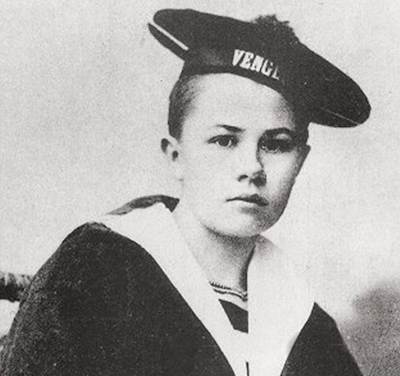
. . . . . . . . . .
Later in life, Isabelle enjoyed weaving fantasies around this ambiguity, claiming variously that her father was a Tartar Muslim, that he was a doctor who had raped her mother, and that he was a Turk. Many years after her death, another, even more outlandish theory was put forward by the French writer Pierre Arnoult, who claimed (with no evidence other than a passing facial resemblance) that she was the daughter of Arthur Rimbaud.
Trophimowsky was a dominant figure and a fervent anarchist. The family had a large house, Villa Nueve, on the shores of Lake Geneva, but despite the luxury, Nathalie’s physical and mental health declined steadily. The eldest three children, who had traveled with Nathalie to Switzerland, were also notably unhappy: the daughter, Nathalie, denounced Trophimowsky to the police for making “disreputable and obscene propositions,” while one of the boys, Vladimir, ultimately took his own life.
Trophimowsky, who believed in equal education for boys and girls, took charge of the children’s home schooling and general deportment. Isabelle was encouraged to dress as a boy, and he taught her to ride and to shoot. Most formal education consisted of horticulture — long hours were spent working in the gardens that surrounded Villa Nueve — and languages.
Brought up to be bilingual in French and Russian, Isabelle was given a thorough grounding in Latin, Italian, Ancient Greek, and classical Arabic. She also loved the novels of Pierre Loti, who fictionalized his travels in Africa, the Middle East, and the South Seas, and together with Augustin, she began to dream of an escape to the Mahgreb.
Augustin was ultimately a disappointment to Isabelle. As an adult, he was indecisive, weak, alcoholic and an opium addict; after attempting to escape the stifling home atmosphere by joining the French Foreign Legion, he was dismissed for criminal behavior and sank into disgrace.
Isabelle, however, continued to dream. One of her first short stories, Visions of the Mahgreb, depicts a young Russian woman’s encounters with an Islamic mystic in Algeria. It was published in the French journal Nouvelle Revue Moderne under a man’s name. The exotic fantasy of north Africa became an obsession, and after she left Switzerland permanently for Algeria this fantasy blended with reality in her fiction, journalism, and diaries.
First journey to Africa
Isabelle’s chance finally came when she was around twenty. She had spent several months in contact with two men who had strong ties to the Sahara: Eugène Letourd, a French officer stationed in Algeria who had placed a newspaper advert for a pen pal, and Louis David, an Algerian-French photographer who contacted her after reading her stories.
Both encouraged her to relocate to Algiers, and in around 1896 she made her first trip accompanied by her mother, whom she adored and referred to as the “White Spirit.” The journey, however, was too much for Nathalie, who suffered from heart problems. She died shortly after arriving in Bône, having formally converted to Islam. Isabelle was distraught at her mother’s death.
Trophimowsky, who had been sent for when Nathalie’s health deteriorated but arrived after she had died, showed little sympathy; when Isabelle cried that she wanted to follow her mother into death he responded by offering her his revolver, which she declined. He returned to Switzerland and left Isabelle in Algiers, where she quickly spent the money left to her by her mother. Poverty forced her to return to Geneva in 1899. There she found him seriously ill with throat cancer. She nursed him through his final months, and he died in May 1899.
. . . . . . . . . .
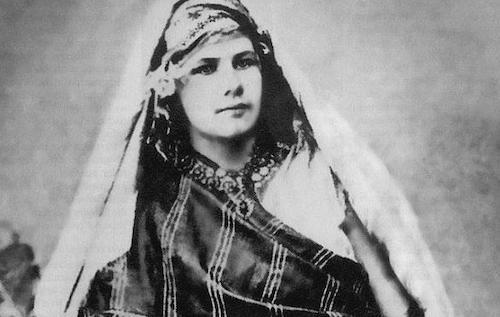
. . . . . . . . . .
The wandering yearsAfter some legal wrangling over Trophimowsky’s will and the status of Villa Nueve, Isabelle first mortgaged and then sold the property and returned to North Africa. Free of the toxic environment of the Swiss villa and without any real family ties, she embraced life as a vagabond.
She wandered restlessly, writing her diaries and stories and travelogues, usually alone and always dressed as a man. In the deeply patriarchal and traditional North African societies of the time, traveling as Si Mahmoud Saadi rather than Isabelle Eberhardt afforded her freedoms she would otherwise never have been granted (although she spared little thought for the often powerless situation her female Arab contemporaries found themselves in, which has drawn critique from modern feminists).
The success of her disguise was sometimes doubtful: according to her friend Robert Randau, many of the men she met knew that she was a woman, but their deeply ingrained sense of courtesy meant that none of them ever said anything.
Her lifestyle was not only itinerant but promiscuous. Her early French biographer Claude-Maurice Robert said that she “drank more than a Legionnaire, smoked more than a hashish addict, and made love for the love of making love.”
When passing through cities, she would often walk the streets in search of sex, mostly with sailors and working men, and on a visit to the town of El Oued, her behavior drew the attention of the local colonial administration. But she was also deeply spiritual. Drawn to fatalism, she was convinced that she had been born under an unlucky star, and frequently conjured the idea of maktoub (‘it is written”).
Some years later, Isabelle wrote in her diary that, “It is the inescapable chain of events that has brought me to this point, rather than I who have caused things to happen.” Her spiritual quest was an attempt to find some meaning, and she was eventually initiated into the Qadriya. This was a Sufi brotherhood that wielded immense influence among the desert tribes at the time, and which gave her the sense of familial belonging that had been missing throughout her childhood.
Love, and an assassination attempt
Around 1900, on a return visit to El Oued, she met and fell in love with Slimène Ehnni. He was a young Algerian officer and an évolué, an Algerian committed to French rule and who held French citizenship. They took the risk of living together openly, a decision that drew anger and condemnation from the French authorities who had already blacklisted Isabelle because of her previous behavior.
Attempts were made to split the couple up by posting Slimène to Batna instead, and although Isabelle was too poor to accompany him there, their feelings for each other remained undiminished and they were still very much a couple.
In 1901, at a Qadriya meeting in Behima, an attempt was made on Isabelle’s life which resulted in her left arm being almost severed. Whether or not the assassin was hired by the French authorities remains a matter of speculation: certainly, Isabelle believed that that was the case, although others maintained that it was either the result of tribal rivalries or a lover who was tired of her (falling in love with Slimène had not entirely put a stop to her promiscuous lifestyle).
The wounded arm would cause her immense pain for the rest of her life. However, not long afterward, in October of that year, she and Slimène married in Marseilles in both Muslim and civil ceremonies. This entitled her to French citizenship and, the couple hoped, would end the intolerance of the authorities against them.
Journalism, writing — and espionage?
The publicity surrounding the assassination attempt reached France, where a Parisian editor called Victor Barracund became aware of the story and Isabelle’s writing. He invited her to contribute to a new newspaper he was starting in Algeria, Al-Akhbar, and she jumped at the opportunity. Her first assignment was in Aïn Sefra, near the western border with Morocco.
Here she met the French officer Hubert Lyautey, and the two became firm if unlikely friends. After her death Lyautey would write, “She was what attracts me most in this world: a rebel.” As with her relationship with Slimène, her friendship with Lyautey was not without its problems: despite her demonstrated commitment to the Arab way of life, she was accused of working for the French as a spy.
Nothing came of the accusation and no involvement with the French authorities was ever proven, although her biographers in later years have generally accepted that she did, on occasion, engage in espionage for Lyautey.
From Aïn Sefra, she traveled along the border, reporting on the Moroccan-Algerian clashes between Berber tribes and the French forces. Her journals and travelogues from this time record her impressions of the landscape, often in romantic and lyrical language: “…black spots of scattered trees, the bluish line of a large palm grove, and a broken minaret appears reddish brown as it towers above the sand in the still-slanting sun.”
Her writing had always occupied a central part of her life, and she viewed it as a welcome respite from the preoccupations with drink, drugs, and sex that she was often unable to prevent overwhelming her. As well as her articles for Al-Akhbar, several of her short stories appeared in the local press, and Barracund eventually gave her a regular column in which she wrote about the customs of the Bedouin tribes.
An untimely death
By 1903, Isabelle’s health was starting to fail. Years of heavy drinking and smoking took their toll, along with the deprivations of travel. She had lost all her teeth, suffered bouts of malaria, and also had syphilis. Suffering had never bothered her; she was a natural ascetic who believed that “the human body is nothing, the human soul is all,” but by the late summer of 1904 she was sufficiently weak with fever that she was admitted to the hospital at Aïn Sefra.
Against medical advice, she discharged herself some weeks later to meet Slimène, whom she hadn’t seen for almost a year. The couple rented a small mud house for their reunion, but the next day the town was struck by a flash flood. Slimène survived, but Isabelle’s body was found later, pinned under a beam of the house and surrounded by the soggy pages of her latest manuscript.
Under Lyautey’s orders, soldiers rescued the papers, which were later restored and preserved. He also organized her burial in Aïn Sefra, where a marble headstone was engraved with both her adopted Arabic and given French names.
. . . . . . . .
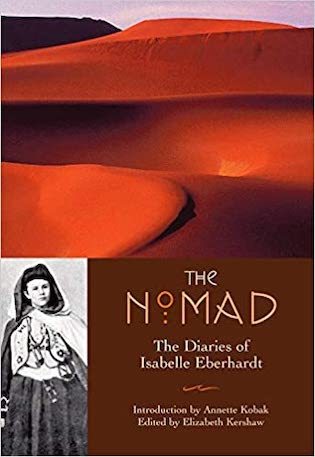
Isabelle Eberhardt page on Amazon
. . . . . . . .
Isabelle’s writing brought her little money during her lifetime, and appeared in book form only after her death. Two anthologies of her travel journals, The Oblivion Seekers and In the Shadow of Islam, are still available. Her life, however, has proved more inspiring than her writing.
Hailed as an early advocate of feminism and decolonization (although modern scholarship has drawn attention to her complicity with Lyautey) and as a daring adventurer, she has been the subject of plays, two films, an opera, and a Broadway musical. Ironic, perhaps, for a woman who wrote shortly before her death, “Soon, the solitary, woeful figure that I am will vanish from this earth.”
. . . . . . . . .
Contributed by Elodie Barnes. Elodie is an author, poet, and artist with a serious case of wanderlust. She is originally from the UK, but has spent time abroad in Europe, the United States and the Bahamas.
When not traveling or working on her current projects — a chapbook of poetry, “The Cabinet of Lost Things,” and a novel based on the life of modernist writer and illustrator Djuna Barnes — she can be found with her nose in a book, daydreaming her way back to 1920s Paris. Visit her on the web at Elodie Rose Barnes.
More about Isabelle EberhardtMajor works
Departures: Selected Writings (2001)In the Shadow of Islam by Isabelle Eberhardt, Peter Owen (2003)The Oblivion Seekers by Isabelle Eberhardt, Peter Owen (2009)Biography and diaries
The Nomad: Diaries of Isabelle Eberhardt, ed. Elizabeth Kershaw, Interlink Books (2003)Isabelle: The Life of Isabelle Eberhardt by Annette Kobak, Virago (2006)More information
Wikipedia Reader discussion on Goodreads Feminize Your Canon (Paris Review) Rejected Princesses: Isabelle Eberhardt. . . . . . . . .
Explore more rad voices in women’s history on this site.
*This is an Amazon Affiliate link. If a product is purchased by linking through, Literary Ladies Guide receives a modest commission, which helps maintain our site and helps it to continue growing!
The post Isabelle Eberhardt, Fearless Nomad and Seeker appeared first on Literary Ladies Guide.



